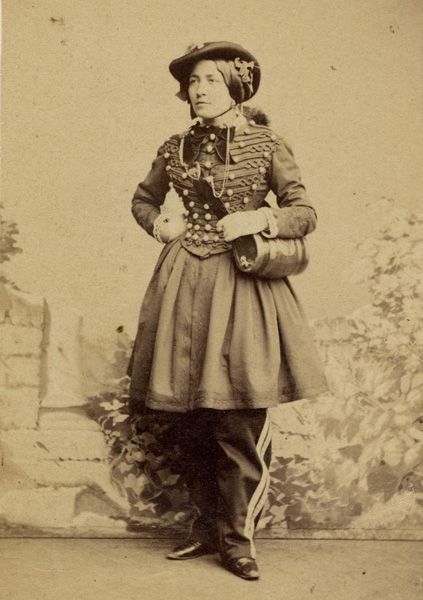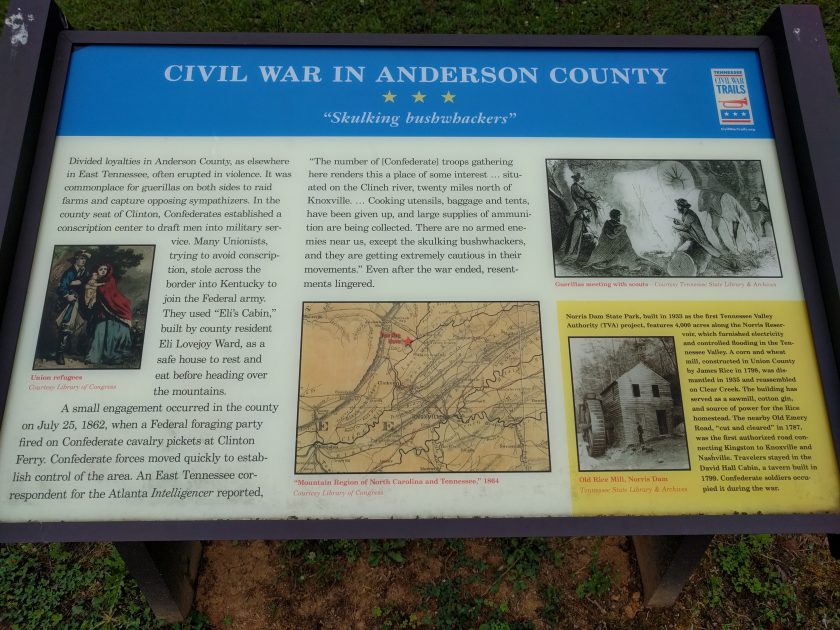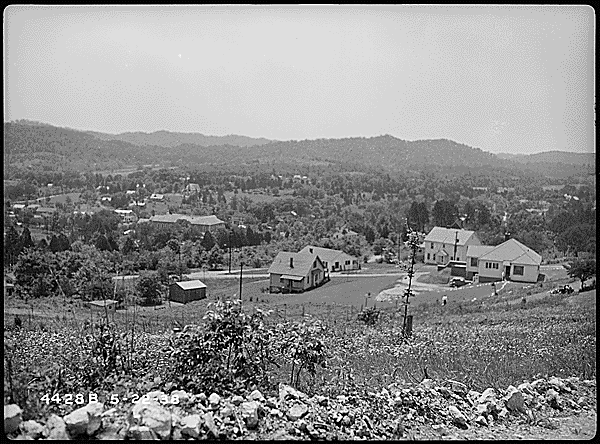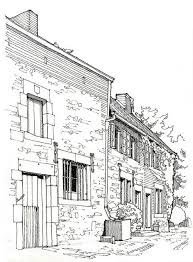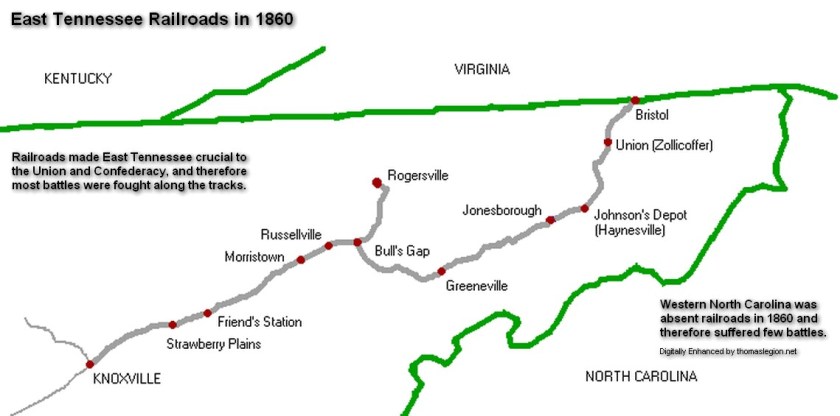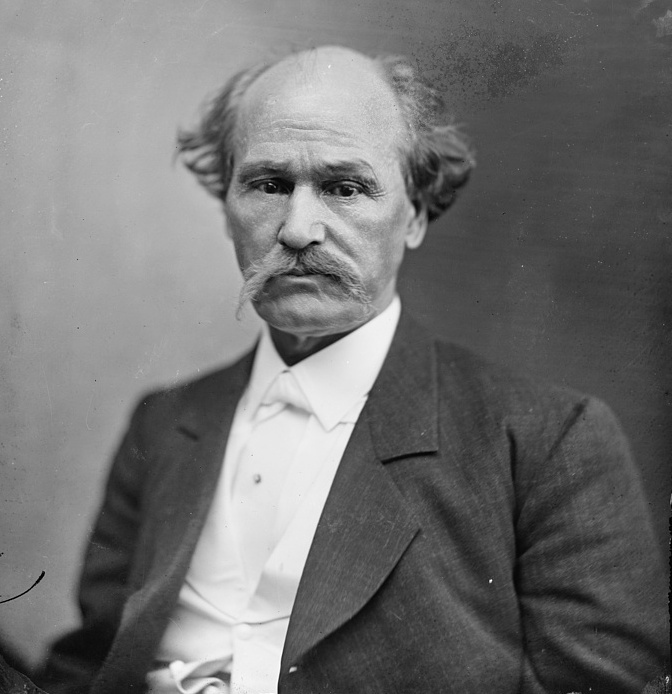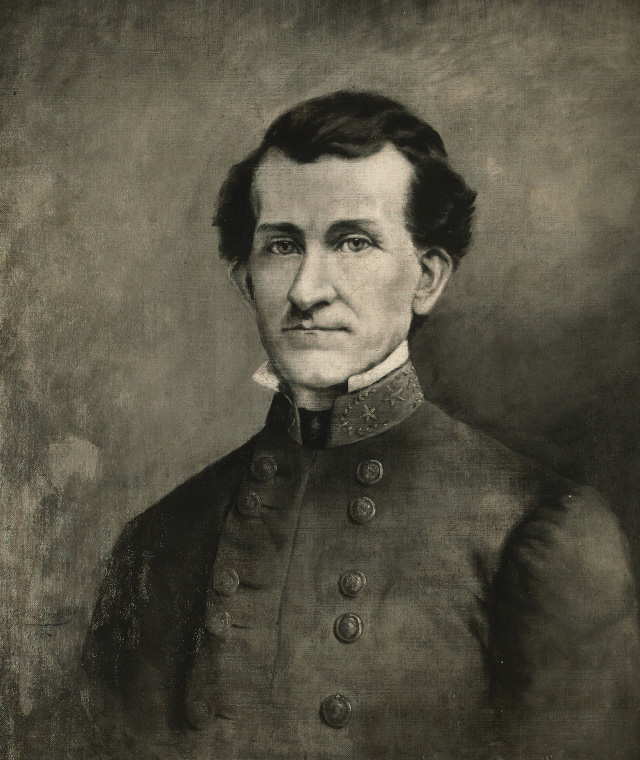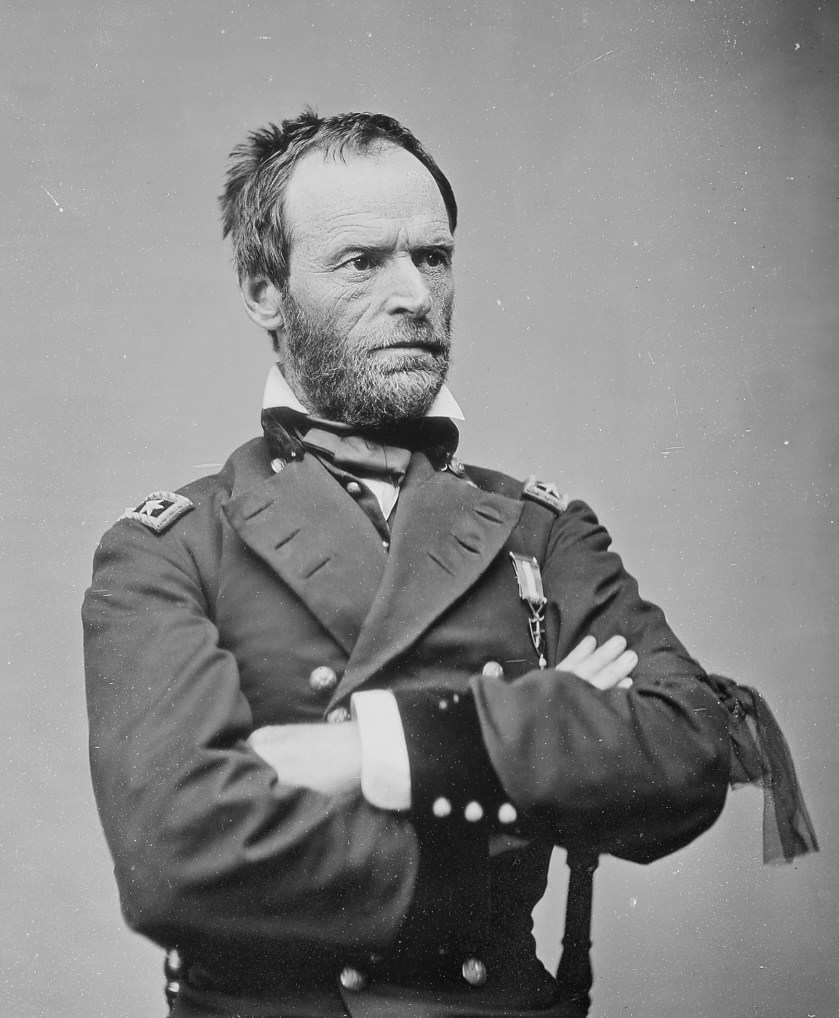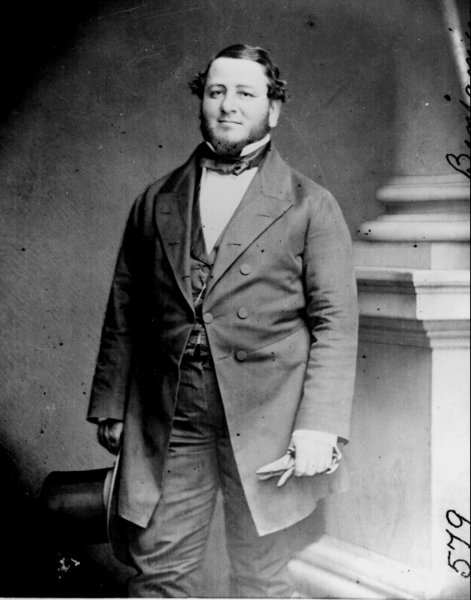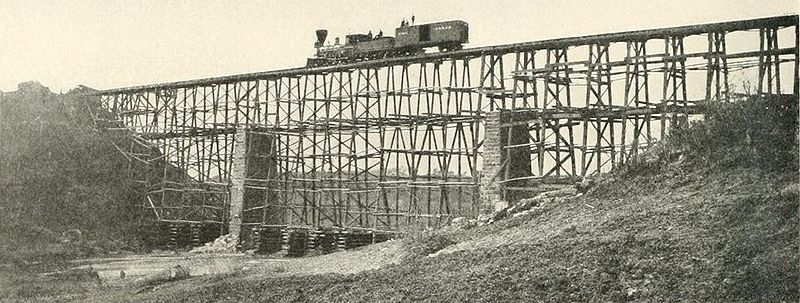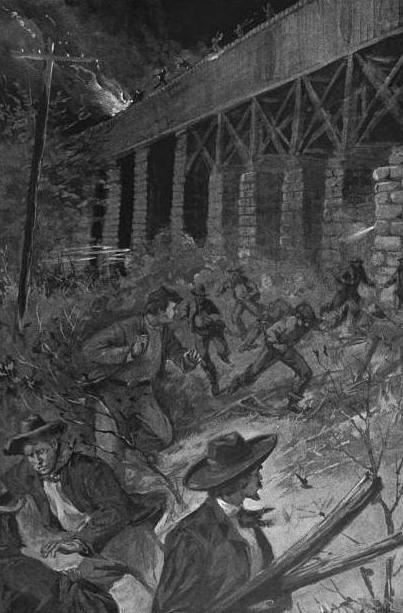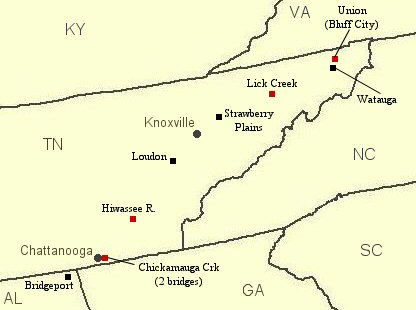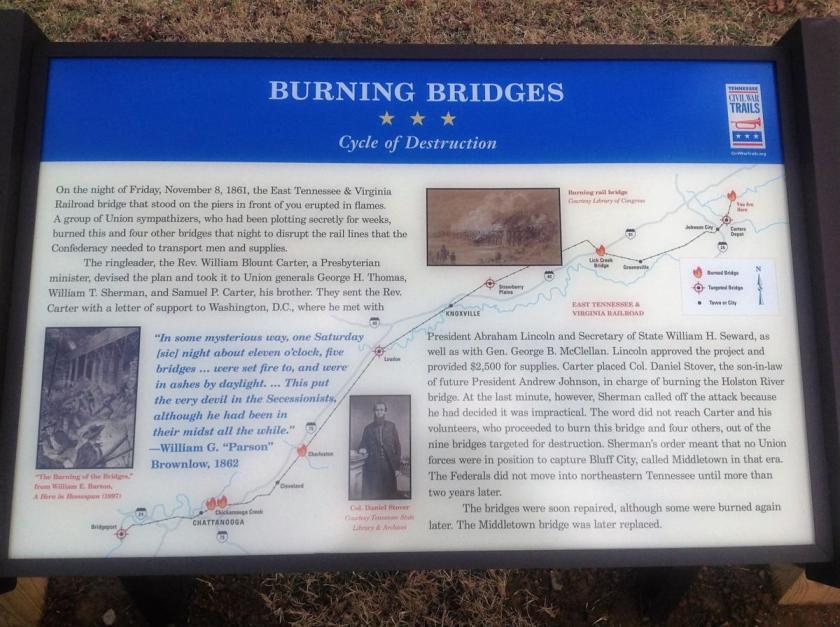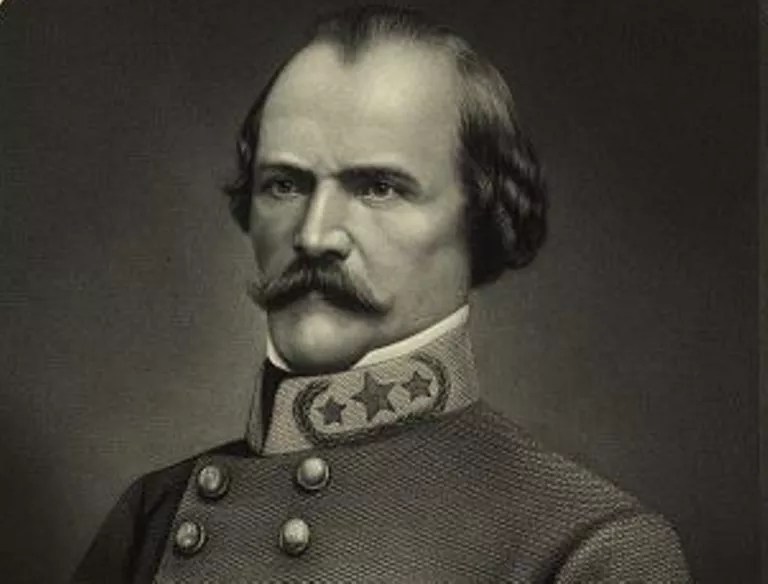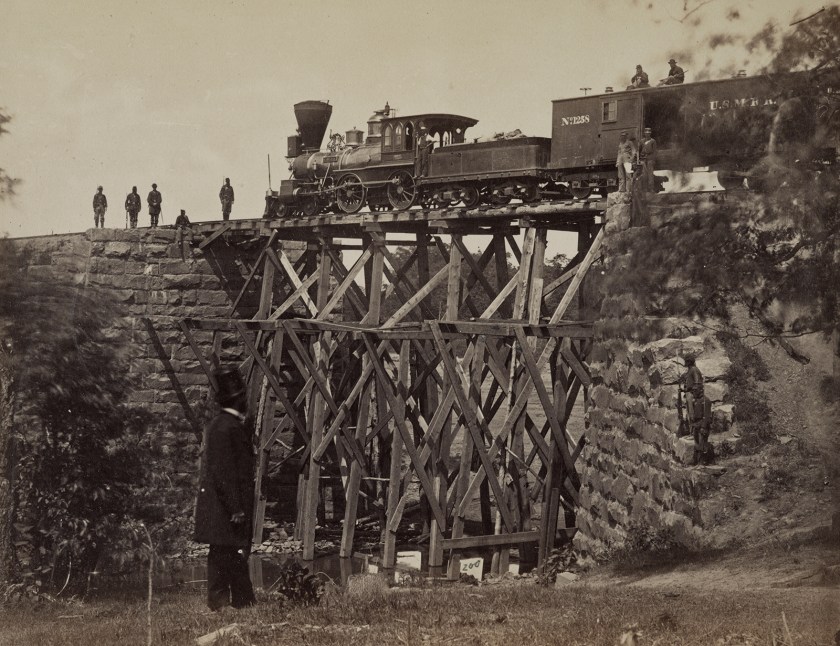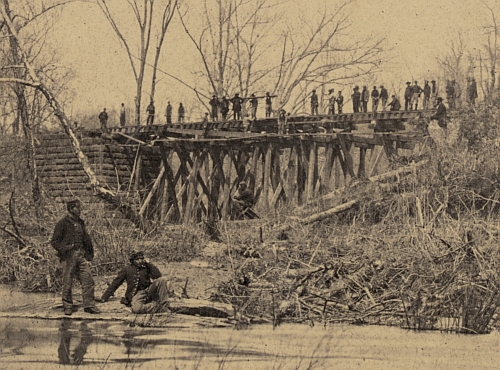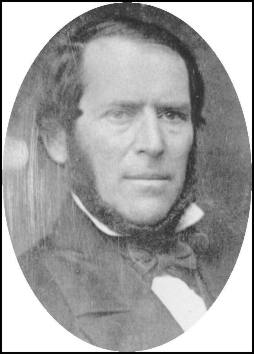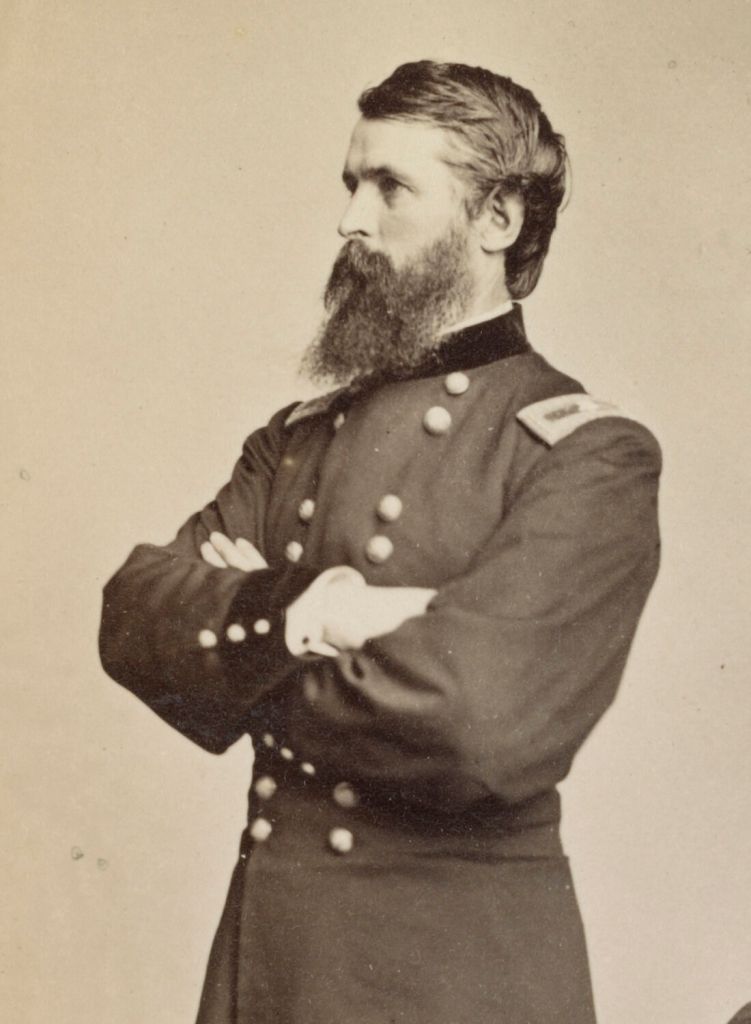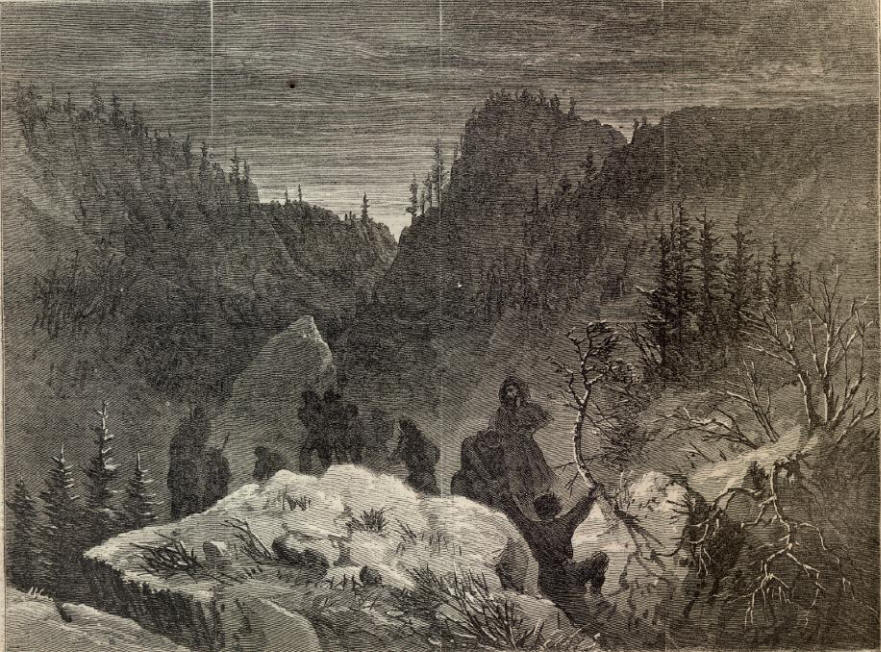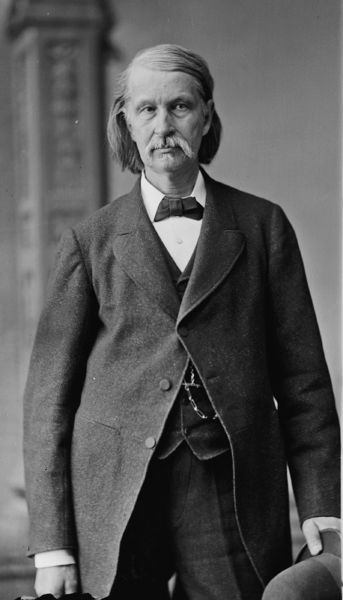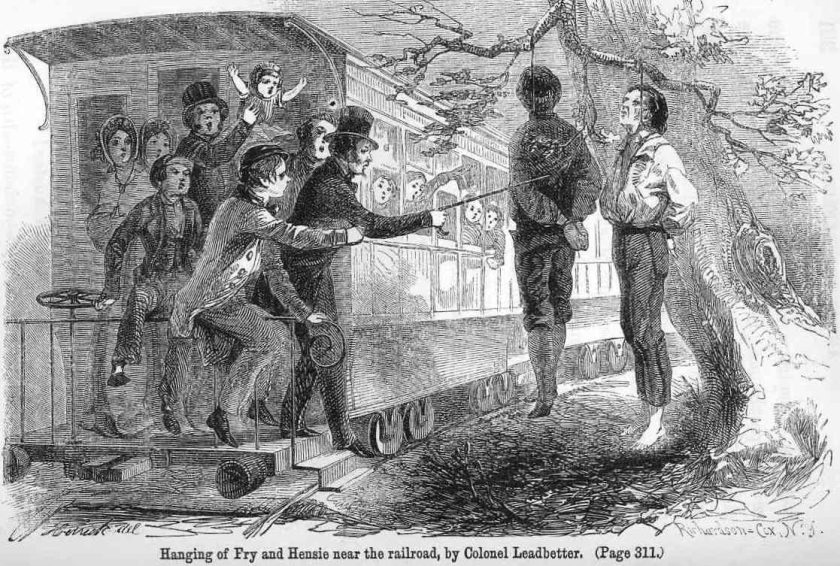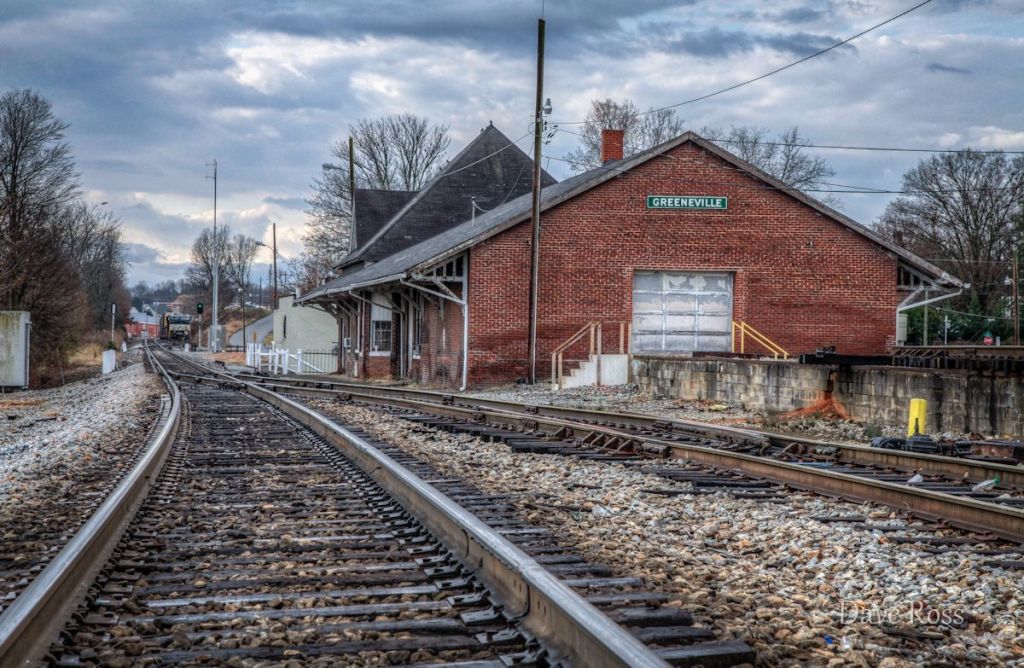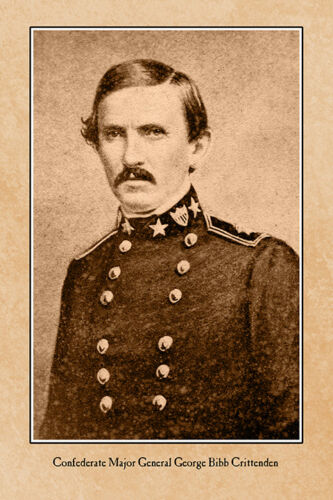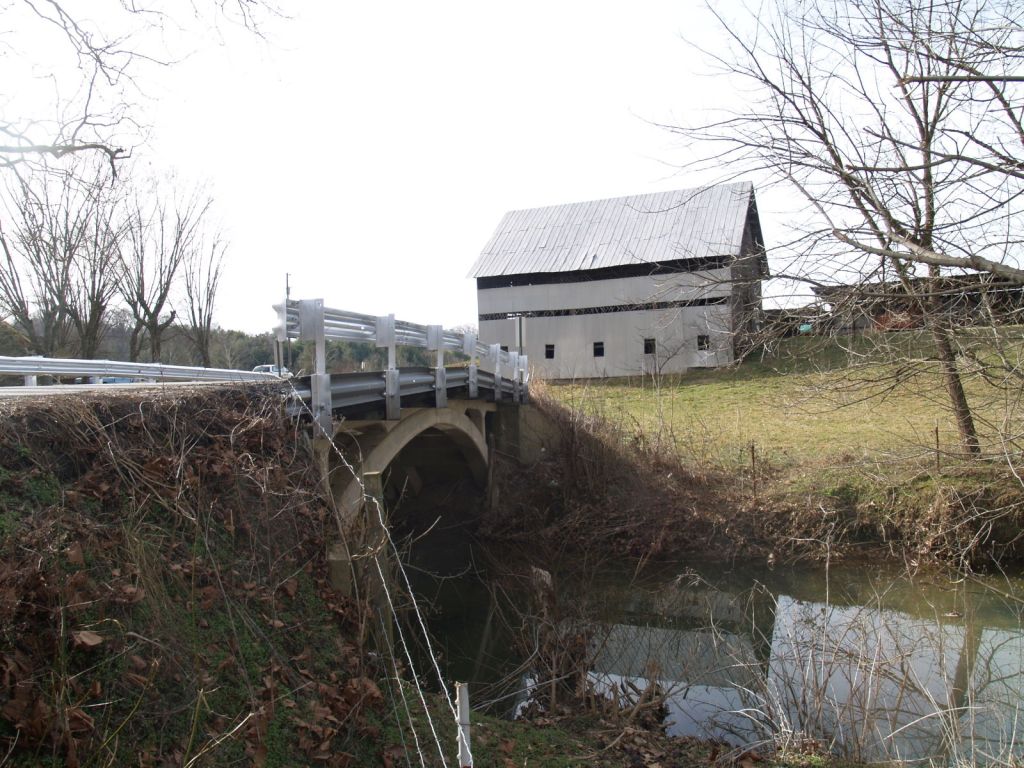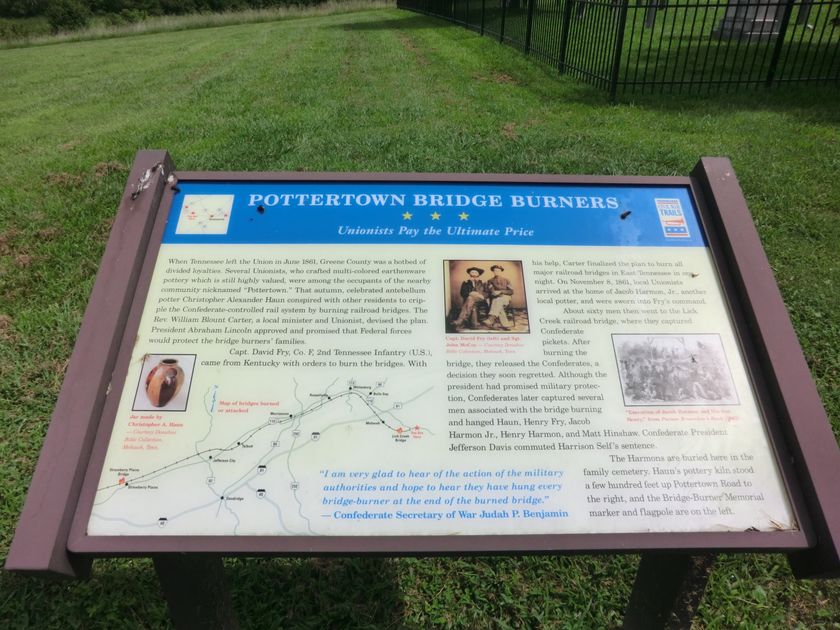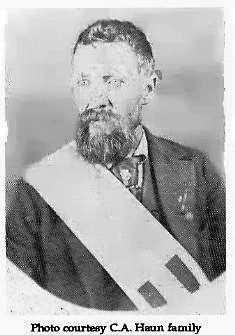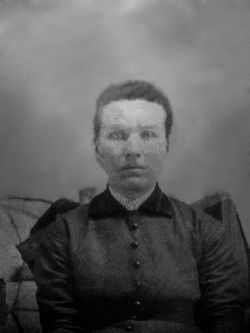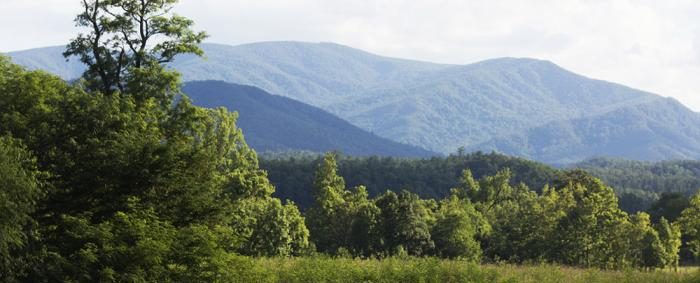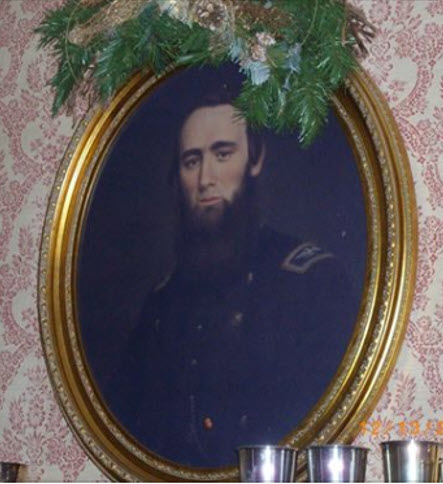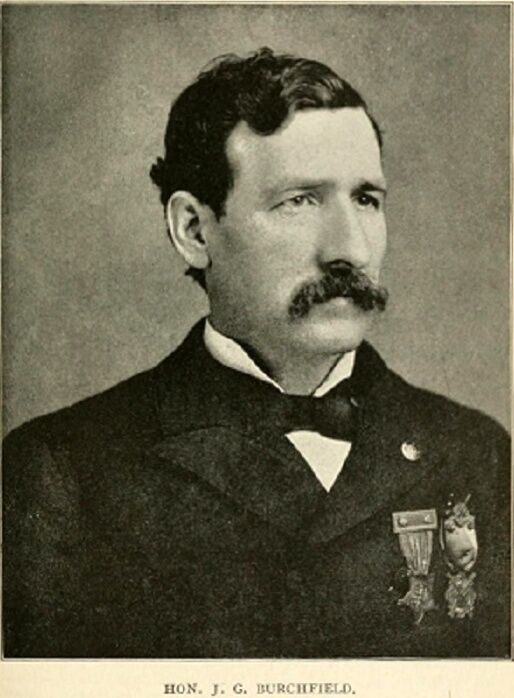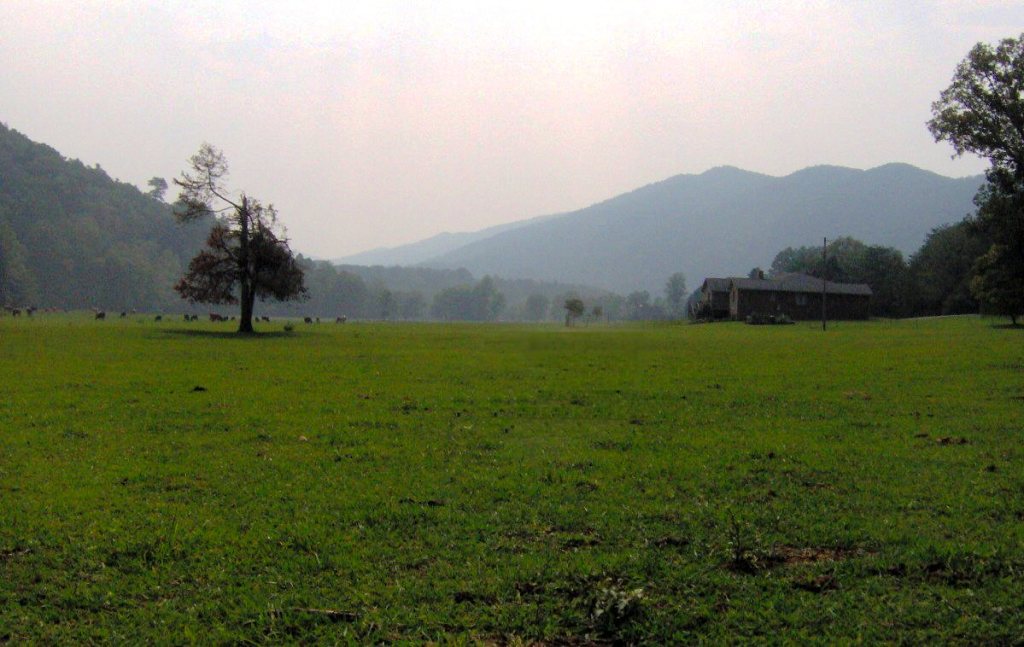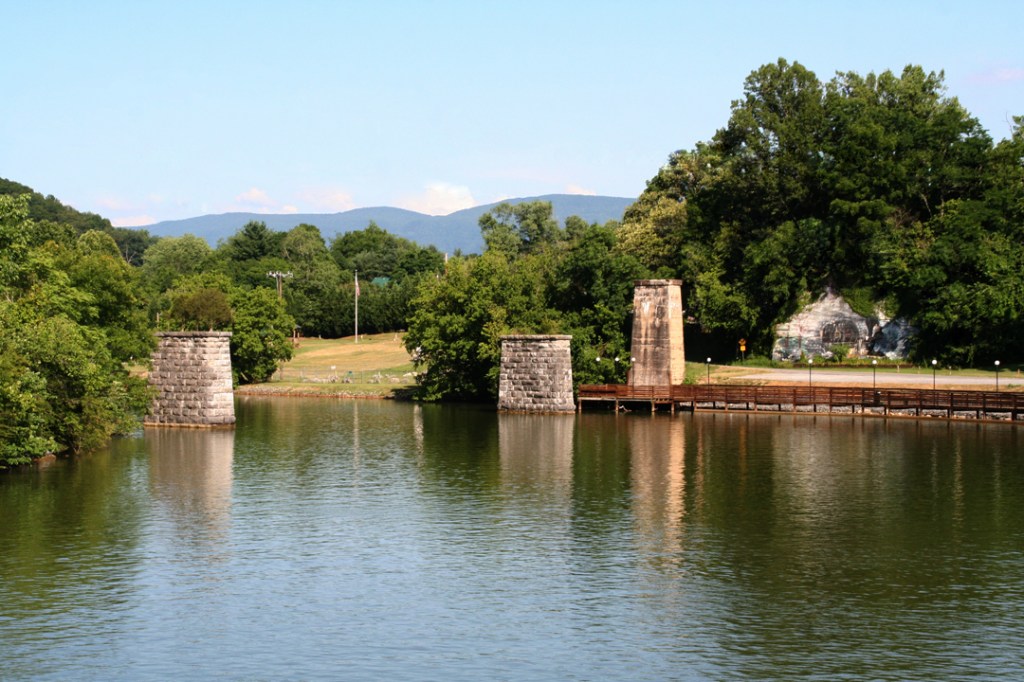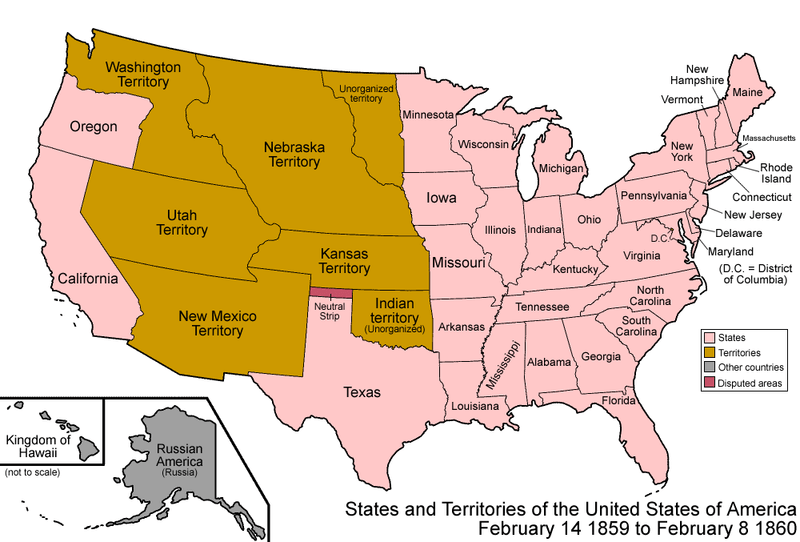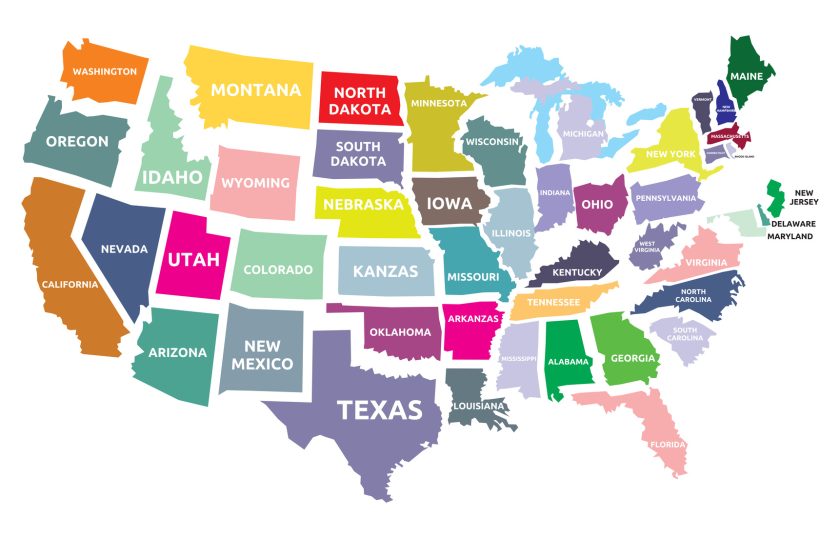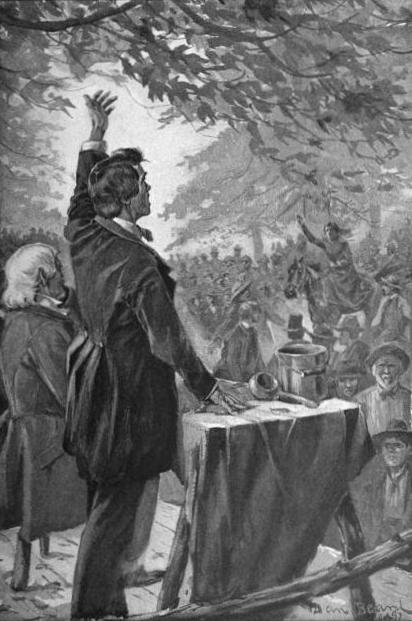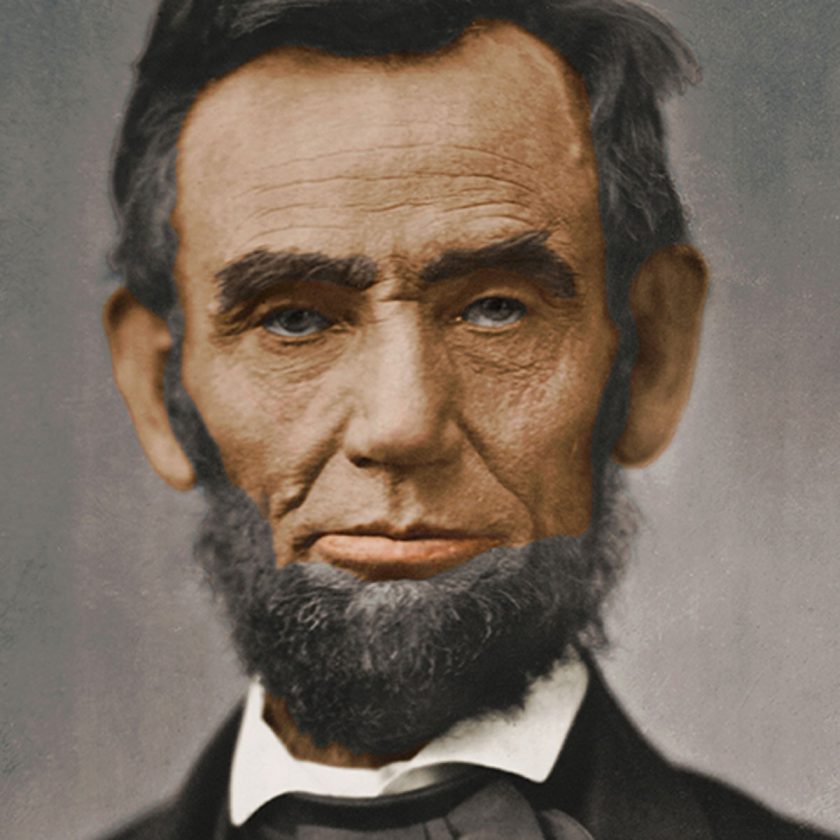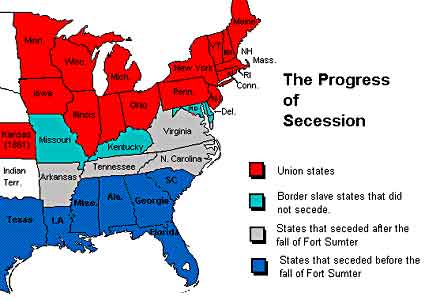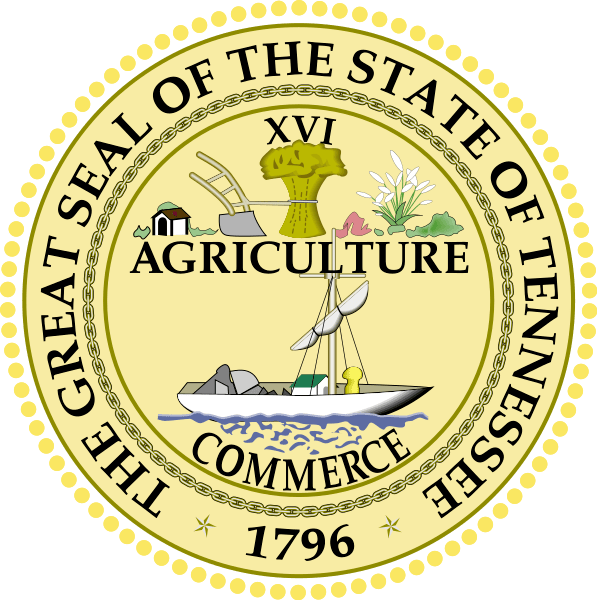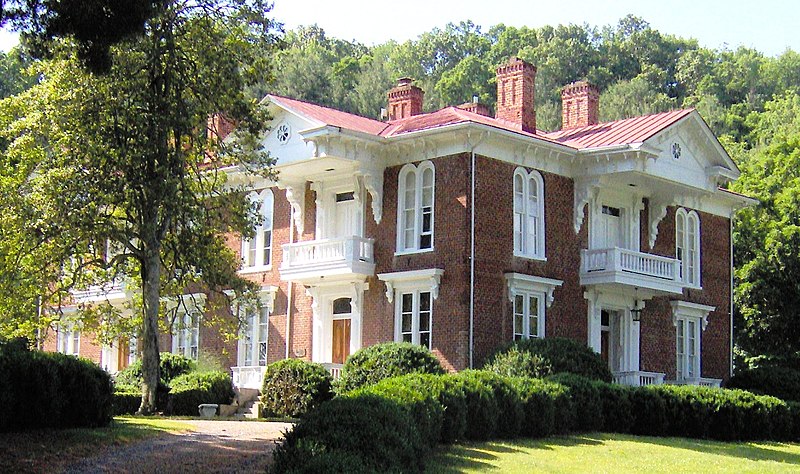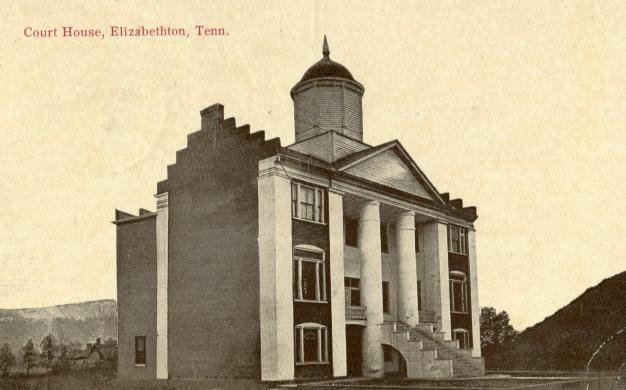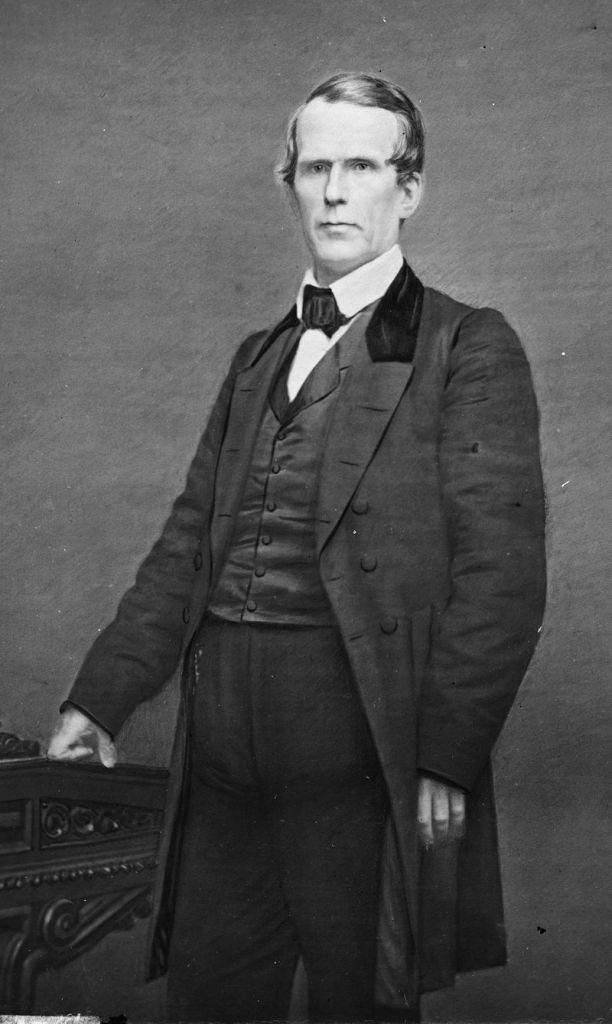Lucy Virginia Smith is born 26 March 1825 into an affluent family in Accomack County, Virginia. After her mother’s untimely death, Lucy and her sister Lide attend Mrs. Hannah’s School, a private academy in Washington, PA, where Lucy graduates with high honors. While they are away at school, their father remarries, and the girls are not happy with the situation at home. They move to Memphis in 1845, where they both found jobs as tutors for the children of prominent families there. Lucy and Lide work to pay for their education, which their father did not pay.

I know she hated to be called Lucy, but I think L. Virginia is worse, and LVF is no better. So I am calling her Lucy.
While living in Memphis, Lucy publishes some of her first writings in newspapers and magazines and published poetry for the Louisville Journal under the pseudonym L’Inconnue, the unknown. In 1852 Lucy is hired as associate editor of the Southern Ladies’ Book in New Orleans. Neither of the girls marry until they have reimbursed Mrs. Hannah’s School for their education.
While reading her poem “One or Two,” a wealthy landowner and horse breeder from McMinnville, Tennessee falls in love with Lucy. He travels to Memphis and asks her to marry him. On 12 January 1853 Lucy Virginia Smith marries John Hopkins French and moves with him to his estate, Forest Home, in the mountains near McMinnville, in Warren County—a few counties west of East Tennessee. The Frenches have three children, a son and two daughters: Walter Scott French in 1854, nicknamed Bouse; Jessie Virginia in 1855; and May Lide in 1857, nicknamed Ting.
Lucy Virginia French continues to write and publish her poetry after the wedding. John French wholeheartedly supports his wife’s profession, often tending to the children to give her time to work. From 1856 to 1879 Lucy serves as literary editor of various newspapers and magazines, among them the Southern Homestead in Nashville, the Rural Sun, the Sunny South, the Crusader, and the Ladies’ Home, all in Atlanta; and the Southern Literary Messenger in Richmond.
Though McMinnville is somewhat remote, Lucy does quite well there. The larger community also support her work. Friends write newspaper articles to southern papers introducing her work to larger audiences. On average she earns $400-500 per year for her work [$16,445.96 today], quite a feat for a woman of her time.
From the 1850s through the late 1870s, Mrs. French publishes her first book of poetry, Wind Whispers (1856), financed by her husband; a series of legends in verse; Istalilxo, the Lady of Tula, a five-act tragedy of Mexico before Cortez (1856); Legends of the South (1867), a book of poems; My Roses (1872), a novel; and Darlingtonia (1879), a novel.
In 1860, Lucy Virginia French organized a Ladies Petition against Secession, and invited her personal and intellectual friends from both the North and the South to sign it. In that document, she argues that the United States Constitution offers the best protection to women and children, obviously concerned about the issues then facing the country. Tennessee becomes one of the Confederate States on 8 June 1861. Lucy supports the Confederacy once the war begins, and her diary reflects that.
As the Civil War begins, Lucy John French are living at Forest Home with their three children in McMinnville, Warren County—a few counties west of East Tennessee. They own slaves and are loyal to the Confederacy. Her home and her family are always her first priority; she writes because she loves it, just as she loves painting, playing the piano, embroidery, and working in her garden. In the 1860 U.S. Census of McMinnville, Warren County, Tennessee, the Frenches list three children ages six and under, one boy and two girls. Lucy’s profession is listed as “Poetess, Author.“
In 1862 Lucy begins keeping a diary, mostly about the Civil War, but she also writes lengthy comments about politics and society from the perspective of an affluent, educated woman. Her journal entries are written at her family’s homes in McMinnville and Beersheba Springs, Tennessee. She does not write daily entries, but summaries of the previous week’s events. The author becomes well-known, and during the Civil War, soldiers from both armies stop at her home to meet Mrs. French and get her opinion of their own work. During her lifetime, she also works tirelessly for equal education for women.

In addition to urging his wife to take time for her writing, in 1856 John French financed the publication of her first book of poetry, Wind Whispers, a series of legends in verse.
amazon.com/Wind-Whispers-Collection-Poems-Classic-Reprint/dp/1332847765
Lucy Virginia French’s Civil War Diary
Sunday 16 February 1862
Two weeks have passed since I have written upon these pages. During the first week the weather was either rainy or cold! I [staid] stayed at home sewing & we had but few visitors. The war news was not inspiriting to us, Fort Henry being taken, and the Federal gunboats making a reconnaissance as they call it, up Tennessee river. … The second week I spent mostly in company. On Sunday went to Church; Monday evening took tea at Mrs. Read’s.
Tuesday spent the day with Mrs. Campbell, & took tea with a family party at Lou Spurlocks; Wednesday had company to tea myself; … Mr. Cap Spurlocks [Lucy’s friend] being home on a brief furlough seems to be the cause of all this suppering. … Thursday was a lovely day. News came in the evening that they were fighting hard at Fort Donelson, and that our troops were evacuating Bowling Green & falling back to the Tennessee line. Tennessee is now invaded, and every man will be called out to defend her soil. …
Saturday we intended to make calls but were prevented by weather being so cold. Quite a fall of snow occurred on Friday (Valentine’s) night, the second we have had this winter. It was about 2 inches deep and is melting some to-day. The last night’s news is that we have whipped the Federals badly at Fort Donelson notwithstanding their invulnerable gun-boats & overwhelming numbers.
Bouse [her son] is looking very finely—he is a handsome boy, with a manly spirit. He asked me last night to explain to him about the gun-boats of the Yankees.
We were all amused at Ting [daughter May] yesterday—she was reading us the ‘nuse’ as she calls it in the paper. Seeing the Eagle on the Banner’s heading she pointed to it with such roguishness … “See here, Cousin Mollie, this is the thing the Yankees are bringing to peck us!” Her readings about “our men” and the Yankees kept us in a roar of laughter. … Dear little children! They are so full of fun and frolic as ever – they know nothing of this Yankee war! And God be praised they do not – they are all the sunshine we have in our darkened homes now!”
22 February 1862: Opinion of a Warren county Confederate woman on Fort Donelson
Saturday. I cannot remember that I have ever experienced a more gloomy week than that which is just past. On Sunday evening last [16th] when we were all confident of victory at Fort Donelson, the news came that at last we were completely overpowered—that hundreds were killed and thousands made prisoners—that Nashville had surrendered unconditionally—the Federals have taken possession and that our Bowling Green army had fallen back to Murfreesboro! A deeper shock I never felt; I gave up the Confederacy as lost.
All this week we have been in a state of the utmost anxiety and suspense—not a mail has reached us from any point, and we are dependent altogether on rumors, of which there are a thousand and all conflicting. Today it seems that we met with disastrous defeat in the end at Donelson by the enemy’s overpowering numbers surrounding our men, who fought bravely and well. Gens. Floyd and Pillow escaped with some of the troops, but Buckner is a prisoner. It is now contradicted that Nashville surrendered, and sent a boat of truce with a flag on it down the Cumberland to meet the enemy and give up the city (!) as it was at first reported—but it is certain that our troops from Bowling Green have fallen back to Murfreesboro, and they have burnt the bridges, steamboats, etc. at Nashville and not a Yankee near them!
Oh! it is disgraceful! Gov. [Isham] Harris who rode around town alarming the city by saying, “Every man must take care of himself; I am going to take care of myself.” … but seeing his mistake has now it is said returned, saying he is going ‘”to fight to the death” and that he only ran off to carry away the archives of the State. Well, any excuse I suppose is better than none—but, the fact is that he and Gen. A. S. [Albert Sidney] Johnston have disgraced themselves and Tennessee by their inefficiency and cowardice. A rumor has been heard that our army would fall back to Chattanooga! I think they had better if Johnston is to command them, fall down into Mexico at once, and be done with it. …
This is the anniversary of the birth of our Great Washington and set apart for the inauguration of Jefferson Davis whom some style the “second Washington.” Will he prove himself such? That remains to be seen. If this day is to be ominous of our political future, it will be gloomy indeed. I have been sick all day with one of my dreadful headaches which added to other dark clouds around me to make me desponding. Still, I confess I have much to be thankful for, my children are well—my husband is still with us—may God preserve us thus in peace at home.
2 March 1862
Another week of suspense, gloom & oppression has passed over us. The weather has been mostly spring-like, and the birds are beginning to be singing everywhere. I should have gone to church to-day notwithstanding the high wind, but Mrs. Spurlock has our buggy (she went down to Murfreesboro to see her husband who is in the army & sick), and I did not feel well enough to walk. During the past week the Federals have taken possession of Nashville. Gen. [Don Carlos] Buell USA it is said made a speech to the citizens, in which he told them to go on with all their accustomed business, that he was there, not to molest, but to protect them! etc. etc. We shall [see] how this will be.
Our forces are falling back from Murfreesboro. Harris has called out the militia, & every man is obliged to go. While I was instructing the children in their Sundays lesson this morning, a messenger came for cousin John to come to town to attend to some meeting of the men. In this meeting it was resolved that no organization could go on here, now, as we are all under Lincoln rule, and his army is so near us. It is quite uncertain what will be done. We were all very much surprised this evening at cousin Jimmies arrival. He is not well & does not look well, but has raised a cavalry company for the war. I don’t think he will be able to remain long in the army. Wednesday. Mollie [Lucy’s cousin] and Jimmie left this morning on the train for Mississippi. I was sorry to see Mollie go and yet I was glad or rather I was satisfied, for it is better for her. She will not feel the privations & hardships of these trying times half so much there as here. I received a letter from Lide [her sister] night before last; all was in status quo with them. Mollie & Jimmie will stay a day with her as they go down.
9 March 1862
We have had no war news of interest during the past week. We are now in Yankee Land, as Grandma Lyon mentioned today. Why dear she said, I haven’t shaken hands with you since we all got into Lincolndom! Things seem to be quiet here, how long they will continue so, we cannot tell. Report says that goods, salt, coffee etc. which are so scarce & dear here, are plenty in Nashville as they have opened the blockade and have connection with Louisville and Cincinnati. How true it is we do not know. … may we be enabled now to trust in God & hold out to the end!
23 MARCH 1862: One Warren County woman’s opinion of Isham Harris
A good story is told of one Tenn. girl and Gov. Harris. When the Gov. got up his Hegira [a journey to escape from an undesirable situation] he had a special train to carry his high mightiness—a young lady the daughter of a clergyman residing some 25 miles from Nashville was going home and came on the Gov’s train not knowing that it was sacred and “special.” The gallant Gov. ordered her to be put off instantly. “Sir,” said she, “six men such as you are could not put me off this train. I’m going home.” and so she did. Oh! Isham-gallant, chivalrous, courageous and swift … Some of the John Spurlocks asked last night, “Where is Harris now, anyhow!” Brown said. “We hadn’t yet been able to get a train swift enough to catch up with him and find out where he was.”
30 March 1862: We knew they were Yankees
On Sunday last our mail stopped—the train being taken off to prevent its falling into the hands of the Yankees. I was sitting in the parlor with Mrs. Armstrong when I saw an armed force coming up the road. We knew they were Yankees, but all went out on the portico to look at them. I think only of my domestic affairs— my children, flowers, and chickens.
2 April 1862: 138 of them—cavalry.
Yesterday as I sat sewing by the front window I looked up & saw the road thronged with soldiers—Yankees. They looked down at the house so much that I feared some of them would call upon us, but it not being feeding-time they went on. There were 138 of them—cavalry. They did not tarry long in town, going on in the same direction the others went. We are blockaded now most effectually; we can get out no way but by going over the mountains to Chattanooga. No mails ever reach us, & we don’t know anything of what the outside world is doing.
20 April 1862:
This is a rainy day & I cannot go to church. I stay at home reading Carlyle. This week has passed quietly enough. On Monday night a nephew of Mr. Hy. Smiths staid with us; he brought papers containing an account of the battle at Corinth, or rather Pittsburg Landing, but they are all Federal papers. Andy [Senator Andrew] Johnson will allow nothing favorable to the South to be published in Nashville. The Patriot office has been confiscated because its editors would not give in to Andy’s despotism. On Tuesday the Col. took Mr. Smith to Altamont, he staid all night with Mr. Armfield & came home on Wednesday. On the way he met Mrs. Armfield, returning from Nashville; she said that reports came in favorable to our side in regards to the Pittsburg fight, but all such news was suppressed. The Federals claim a great victory—the Confederates do also—so we don’t know how it is. On Friday I had a letter from Lide [her sister] written on the 7th, the day of the battle. She had not heard of it but said all Memphis was holding its breath with expectations. I sent on Friday a letter to the dear old folks [?], sent it open to Nashville so that the Federal pickets might read it if they felt so disposed, and Eddy Campbell is to mail it at Nashville. I also wrote to Lide by Brown Spurlock who is going to Chattanooga. The Federals are in possession of Huntsville & the R. R. as far as Stevenson. Savages Regiment has gone to Corinth.
27 April 1862
This has been a most lovely day; we went to Church, taking little Jessie with us. The past week has been very quiet; we have had a few visitors. I have finished all the children’s summer sewing, and my yard is nearly all arranged for the season. I attend diligently to the children’s lessons, speeches, music, etc. and have time also to play with them, read them stories, take walks after flowers, go fishing, etc. with them. They are all in fine health, for which I am truly grateful. This week has been so quiet that its record must necessarily be short. The woods and mountains look charming; they are quite green; and everything seems fresh & full of life and beauty.

A young Lucy French
en.wikipedia.org/wiki/Lucy_Virginia_French#/media/File:LucyVirginiaFrench.png
Sunday, 4 May 1862
The past week has been almost as quiet as the one preceding it. No news of any reliability has reached us except that the Federal gun-boats were before N. Orleans, but their bombardment of the city was protested against by the English & French ministers. I never could have imagined it possible for one to live in the midst of a revolution & know so little of the real manner in which it is conducted; we feel the effects of war; yet we see but little of its modus operandi. Last week I had my house cleaned from top to bottom, the yard also is all cleaned & arranged for the summer, & everything looks delightfully fresh and smiling. On Thursday (May Day) evening we took a second boat ride on the river with some young friends; it was exceedingly pleasant. Today we went to Church; I took Ting [daughter May]; the little thing grew very weary before meeting was over, and says she had rather go to Grandma Cain’s than to church any more. On Tuesday Grandma Cain, Mrs. Armstrong, Mrs. Reed, & Mrs. Campbell spent the day with me. They took me quite by surprise, but we had a pleasant day nevertheless.
11 May 1862
There is news this week of a great & bloody battle being fought at Corinth; which side gained the victory we have not heard. There is also a rumor that the Confederates have evacuated Yorktown, & fallen back within 12 miles of Richmond. [Gen. John Hunt] Morgan & his men were surprised at Lebanon a few days ago by a Federal force from Nashville and dispersed Morgan himself & most of the men escaped, & we learn are rallying again. On Tuesday evening last I took my first horseback ride this spring; we went to Mrs. Cain’s. On Wednesday evening we had a party of young ladies & gentlemen to tea & then we all went boating on the river, by moonlight. It was very delightful. Thursday evening I rode out again. Friday I was unwell & in bed all day. Mary Armstrong was here & spent the day and Mrs. Spurlock, Julia & Florena, came down in the evening and went boating with the Col. [her husband]. Saturday I was in bed most of the day, & today I am not at Church. Walter went with his Pa; it being his day to go. When he was ready to go, I thought him the finest looking boy I ever saw.
18 May 1862: Wartime Anxieties as Expressed by Lucy Virginia French in McMinnville
Monday of this past week the 12th was little Walters birthday; he was 8 years old. When he was six months old I laid aside a book as the commencement of a little library for him to be given him on the day he completed the 8th year. That day has come and passed, but I did not present him the books. The times are such I could make no party, or little fete for him, and I shall postpone giving him the library until he is 10, perhaps 12. How little, when I made the resolution to collect the books for him did I imagine the state of our whole country would be in when he came to be eight years of age. But so it is, and I may perhaps never see the day he is 12, or he may never see it.
During the past week I have had the children with me all the time, deciding that they must not on any account make associates of the Negros. I put Martha to working out. I teach them constantly–something—devoting myself to them exclusively. It is hard work—very confining—sometimes making me exceedingly nervous, but it is my duty, and that is sufficient.” It must be done, if I wear out with the constant friction.
A few days since I was gladdened by a good letter from dear Auntie in reply to mine. They were all well, and going on as usual. How I love them, and then not to have heard a word from them for nearly a year! I wrote last night to Lide endorsing Aunties letter, and I wrote to Mollie also having an opportunity to send the letters to Chattanooga for mailing. On Monday evening of last week I went to see Mrs. Richardson who has just returned from Texas, taking the children with me. That was the only visit I paid, the only time I went out during the week. I have been sewing, reading, and teaching all the time.
The Federal army continues to encroach upon the Confederate limits. Norfolk is taken, the famous Merrimac or Virginia blown up by the Confederates. Lincoln I am told has opened the blockade by proclamation, but I have not seen the document. He considers the rebellion crushed. Beauregard has ordered the destruction of cotton, sugar, & molasses, etc.; it is being done. A convention met at Nashville on the 12th, resolving on the restoration of Tenn. to the U.S. John Morgan with 200 men made a raid into Ky. on the 11th destroying cars, trains, etc. & securing some 8 or 10 thousand dollars in money!
26 May 1862: Federal forces visit McMinnville
The Federals visited this place again on Friday last [23rd]; came, I presume, to look up resigned officers and disbanded men, but they found none. Contented themselves with stealing horses, watches, etc., and paying for forage etc. in counterfeit money. They did not molest us, however. There are informers among us who keep them thoroughly “posted—as it is quite plain for us to see from their actions and inquiries every time they come …
6-8 June 1862: Movement of Confederate and Federal cavalry through McMinnville
On Friday [6th] the Yankee cavalry rode into town—took some horses and two prisoners from [Col. James] Starnes CSA cavalry now camping at Martin’s. They only remained an hour or two in town—passing back again at a rapid pace. About an hour and half later, about 180 of Starnes cavalry came thundering in pursuit. On Saturday [7th] they came back, brining back all the Yankees but three who escaped and 7 whom they killed. They overtook them on Saturday morning below Woodbury—getting their breakfast at Jetton’s, Barton’s, and Major Talley’s. Two were shot in Mrs. Barton’s parlor, it is said. They shot at our men from the parlor windows. Some were killed in Maj. Talley’s rye-field. On yesterday-Sunday-the Yankees passed down the road again on foot—being released on parole by Col. Starnes. We may look for new forces up here soon—to harass us as they are doing the people about Jasper. Mrs. Read brings shocking news of their outrages over in the Sequatchie Valley.

Civil War Marker
Occupation of McMinnville: Conflict on the Home Front
Inscription.
Early in 1861, when the state first voted on secession, Warren County residents, like many Tennesseans, opposed it. When balloting next occurred in June 1861, however, sentiment overwhelmingly favored secession, and county residents voted nearly 100 to 1 to leave the Union. Young men flocked to Confederate enlisting offices, quickly forming the 16th Tennessee Infantry under John Houston Savage. Benjamin J. Hill organized the 5th Tennessee Infantry, later renumbered the 35th; it trained just south of town at nearby Camp Smartt.
The county’s resources and the Manchester and McMinnville Railroad made McMinnville a strategic location that attracted raids by Confederate Gens. Joseph Wheeler, Nathan Bedford Forrest, and Braxton Bragg. Gen. John Hunt Morgan spent his honeymoon here and planned his Kentucky and Ohio raids from the home of kinsman Dr. John Barkley Armstrong.
McMinnville changed hands at least five times. After April 1863, it frequently served as a Federal base; fourteen forts and blockhouses eventually were constructed to guard against Confederate attack. Union Col. Henry C. Gilbert’s 19th Michigan Infantry was among the first Federal units to occupy the town.
Federal occupation meant some safety from Confederate guerilla bands, but, nonetheless, county residents felt the hand of war when houses, warehouses, factories, and bridges were burned. Local Confederates especially disliked Gen. William “Bull” Nelson, who ransacked the Cumberland Female College here. Partisan bands harassed the Union garrisons with occasional raids. Local poet Lucy Virginia French chronicled the war in diaries detailing the conflicts between Confederate and Unionist families. The last Federal troops departed in September 1865.
Image, lower left
Col. John H. Savage
Image, upper middle
East Main Street, McMinnville ca. 1861
Image, upper right
Cumberland Female College, ca. 1855
Image, lower right
Warren County Court House
Erected by Tennessee Civil War Trails.
Location.
The marker is located on the grounds of the Warren County Courthouse. At the intersection of West Court Square and East Main Street (Tennessee Route 380).
hmdb.org/m.asp?m=83055
9 June 1862: Effects of the war upon a Southern aristocratic woman’s emotions and her children in Warren County
Yesterday I was not well enough to write. I was quite unwell on Thursday—and have been so ever since until this morning—I now feel somewhat better. In addition to my headache and its concomitants, I have been troubled with a diarrhea similar to that I suffered so much from last fall—arising I suppose from the cold, I have taken in some way. I am not worth a picayune—everything upsets me. I have managed to keep up however, and have not missed the children’s lessons. Puss [a slave?] is “ailing” too, and has been for three months—I think if we both were sent to Beersheba [Beersheba Springs, a nearby resort] for a month or two, we would be benefited. I have done but little during the past week, but read, when I could do so for my head. Thursday was dear little Tingie’s birthday—5 years old. The comical little creature knows her letters-and that is all she knows in the book line. But how funny and “cunnin” and knowing she is in a hundred other things. And she asked so many outlandish questions. The other day she asked “Mamma if Pap was to go away to the war and get shoot—what would you do? Would you get you some other husband to take care wid you?” Just now her “ruling passion” is a kitten given her by Mrs. Lou Spurlock—without which, sleeping or waking, she is never seen. I keep the children under my own eye now all the time, and I must confess that having charge of them always [is] in no way [a] very easy task. But it is better for them, and it must be done.
15 June 1862: Federal forces move through McMinnville
On Thursday the 12th, a force of between 4 and 5 thousand Federals passed us going into McMinnville. The first I knew of their approach Martha [a slave] came running up stairs where I was hearing the children’s lessons exclaiming, “The Yankees are coming up the road!” I looked out & saw four or five horsemen at the gate, in a moment they were up to the house. I ran down stairs, and saw that they were taking our favorite horse, Black Cloud. Darlin [John] was in town, what could I do? I did nothing. I said not a word. They were the roughest kind of men, and I did not know how to address them. I was angry and excited & feared I should not say the right thing. So I forced myself to silence. I was the more enraged too because of the lamenting & crying of the children & servants over the loss of the horse. I knew however that Darlin was in town that everybody knew his fine horses, and that he could not fail to see the animal, & would get him back if he could.
Throughout the day the troops came to get something to eat—they were very respectful to me when they saw me. … but a squad of them who sent a stolen negro down after dinner for them sent word to send their dinner, or they would come & take it. I sent a quantity of bread, meat & vegetables which they took & sent the boy back a second time saying that was not half enough. I forwarded or at least told the servants to send them a second supply. Two of those who came to the house offered to pay but I would not receive it. I would not allow the Negros who brought them the victuals to receive it either.
While they were eating however I generally gave them a piece of my mind. They did not seem to get angry acknowledged that I was telling them the truth and thanked me for their dinners!! Oh! how angry and embittered I felt that day to see what trouble this vile thing Secession has brought upon us!
One of the men told me that, “the South had brought this army with all its consequent troubles upon herself.” I said, “If you know anything at all—you know very well that Tennessee never brought this upon us. She stood firm for the Union that she loved until Lincoln’s war proclamation drove her into exile, and rebellion—and now here you are with your armies to drive her back again, I suppose.” He sighed—for he seemed very weary, and said he wished to heaven it could be ended—he wanted to go home. He looked worn, as there was homesickness in his voice as he said it, and I did pity him. I knew that he was the enemy of the South—that he stood before me, an enemy, but I felt sorry for him and it did me good to see him drink the cool milk with an evident relish.
In the evening more cavalry came—rode around the stables, etc. hunting horses, they found none, and went away without molesting anything but the chickens. Late in the evening (as soon as he could get out of town) Darlin’ [pet name for her husband] came home—he was as calm as a summer evening—I really wondered at him. … Next morning [Saturday] the troops left town, going in the direction of Pikesville, a squad of 8 or 10 returning to Murfreesboro. …
Next day those gentlemen got the Negros they came to reclaim [not Lucy’s], and Darlin got his horse—it was taken by Pennsylvanians 7th Reg. The children had a perfect jubilee when their Pa returned with the horse, & Cooper showed his ivory to admiration.

Another image of young Lucy Virginia French
en.wikipedia.org/wiki/Lucy_Virginia_French#/media/File:Lucy_Virginia_French.png
22 June 1862: A reconnaissance in force
The reconnaissance in force which we had thought were moving on to Chattanooga went only 38 miles across in the direction of Pikeville, & then returned. I presume they were in reality hunting Starnes; it is said they heard he was up here in the mountains somewhere fortifying, and they came to dislodge him. They pressed everybody’s horses, mules, wagons etc. to carry them on, some of which were returned to the owners, others were not. They tore up everything at Mr. Betty’s, broke all the furniture, ruined the garden & even tore to pieces Mrs. B’s clothing. They searched our neighbor Spurlock’s house 3 times__ took all their meat, and Mrs. S’s jewelry. They broke into the groceries & literally rifled them. …
On Tuesday evening the long train passed again going back to Murfreesboro, & Shelbyville. Some of them came for corn on Monday night, & while Darlin was giving them the corn, they stole a bridle & Cooper curry-comb & horse brush. On Wednesday morning Willie French came down to tell us they took Bob Halton about midnight the night previous. Darlin was advised by his friends to go on after the horse & he left for Woodbury about 11 o’clock. …
This week with its excitements has broken in considerably on the children’s lessons. I do not intend that it shall be so again, if I can possibly avoid it. Everything goes on as usual now, the Negros work on in their common way, and I think this inroad of the Yankees has done good in one respect at least, it has shown the Negros very plainly that the war has not been made on purpose to free them. They have found too from those who have tried Yankee masters & life in the army, that such a life is not exactly the state of perfect beatitude which it has been represented to be. Darlin arrived at home about 10 o’clock last night, very tired. He had been to Woodbury, Murfreesboro, & Wartrace. … He says he was very courteously treated by the Federal officers. I was so glad to have him at home again …
This is a lovely day but warm. Everything is very dry, for we have had no rain for 3 weeks past, and my flowers and the garden begin to show the effects of it. This morning I went up on the hill with the children after blackberries, the first of the season. The road was dusty & as Jessie walked through it she asked, Ma did God make us all out of this kind of dust? On Friday I happened to ask Puss what day of the week it was? Why mamma said Jessie, as if in great surprise ain’t you a big enough girl to know what day it is? She evidently thought that knowledge a question of age & inches only. I have not been to church for several Sabbaths, thinking it best for us to remain at home in these unsettled times.
29 June 1862: A week of complete quiet
The past week has been one of complete quiet. Our isolated position is assailed by rumors of battles near Richmond, reports that that city has succumbed, or the reverse, and tales are rife of the invasion of E. Tenn. … I have been sewing & reading this week, and have attended rigorously to the children’s lessons. I have been out but once & that was on yesterday evening when I rode in to see Mrs. Armstrong for a little while. The times are so very feverish, & community so split to pieces that home seems to me the best place for a quiet woman.
6 July 1862: The dear old folks are well
Today I am in bed, quite unwell. During the past week I have as usual been reading, sewing & teaching the children, who improve every day. Darlin and myself have been taking very pleasant moonlight rides also. We rode last evening. On Friday we had a letter from Mollie, the second received since her absence. She is well & extremely Southern. Jimmy [Mollie’s husband] is at Vicksburg with his regiment; they seem determined to hold that point. This week we have had good news from Ark. Carolina, and Va. The Federal army under McClellan has met with defeat before Richmond; the fight commenced on Thursday week when the Yankees were driven from their entrenchments & thousands were made prisoners.
Our latest news reports that they were still fighting, the Yankees endeavoring to reach their transports & our men pursuing them through the swamp. This is all very well so far, but Ill bet they gain in the end. They will be reinforced, and then fresh troops will do the work. So it was at Donelson; so it was at Shiloh. They are legion and I greatly fear the result will not be a complete victory on our part at last. God help us if it is not.
We understand that there is a large cavalry force (Forrest’s) at Altamont coming across to march on Nashville. Gen. [CSA William J.] Hardee is said to be marching on that city with 40,000 men. We know not how true is the rumor; one hears anything & everything in these times. Darlin brings the news this evening that McClellan’s army is totally defeated cut off from reinforcements & from their gunboats, and fifty thousand of them killed and prisoners, also that France and England have recognized our independence. I trust this is so; yet I cannot but doubt it. Time will show. I greatly fear that this pleasing prospect will prove a delusion fading away, as others have so often done before. It seems to me quite too good to be true.
I received this evening also a letter from our dear Auntie Martha, kind and cordial as ever. She tells us she heard … that Lide has a baby nearly two months old; it does seem so strange that we should hear this from Auntie first. The dear old folks are well thanks be to the Good Giver of good for their welfare and peace.
13 July 1862: A large cavalry force passed here
Sunday 13th July. At breakfast this morning the servants reported cannonading in the direction of Murfreesboro [approx 50 miles northwest], and sure enough it was so, we all heard it very distinctly; it continued I should think from an hour to an hour & a half. A large cavalry force passed here yesterday about 4 o’clock in the evening, destined I suppose for Murfreesboro. They would I presume reach there this morning & we surmise that an engagement took place as soon as they reached that place. If the men who passed here were the only troops sent to take Murfreesboro our men are whipped sure, but if other forces rendezvoused there, (as the servants report the soldiers to have said they were going to do.) then it may be well for our cause. …
17 July 1862: A McMinnville woman’s account of the raid on Murfreesboro
It is all over, and a glorious victory remains with the South! All day Sunday we were fearfully anxious as to the result—in the afternoon I became very uneasy indeed. I expected every moment to see flying fugitives come panting in jaded horses—and I watched the road narrowly. … About dark I saw two men ride past—then two more—then a squad of some 15 or 20 looking very tired as I thought—”Ah” I said to myself, here they come, I feared it would be so! Presently I heard a great “Fuss” up on the road and told Cooper to run up to the “white gate” and ask the news. He bolted off, but soon returned saying that the men said we had a victory, taken lots of prisoners and these mules. I was incredulous it seemed to me I could not believe our good fortune. But Cooper said they had the mules sure enough, so I began to give way to hope—a little … in a short time 13 wagons filled with the “blue bellies” [Union soldiers] (as the boys call them) came along. … When Darlin’ came home from town, at a late hour, he confirmed the joyful intelligence—a complete victory had been gained! …
Scores of the men stopped … for water—the poor fellows were wearied down as well as their horses. They had gone since Saturday without food or sleep. Many of them if they had to stop and wait awhile for anything—threw themselves off their horses on the ground, and in a moment were asleep. It was 12 o’clock when we got home after the [wagon] train had passed. By the moonlight we saw it all pretty well, except the first column of prisoners who passed before the moon rose out of her eastern clouds. They had about 1300 prisoners—4 cannons and caissons—large lots of mules and horses—and a great many fine wagons filled with arms, prisoners and so forth.
One of the [Texan] Rangers showed us a flag he had taken. We took it into the parlor where a wounded soldier was sleeping and examined it. It was a beautiful banner, elegantly made of the finest silk, and embroidered—belonged to the 9th Michigan Infantry, presented to the commander Col. Wm. Duffield, by the ladies of Detroit. I shall never forget the scene which passed before upon this evening. Did I ever think to see the “stars and stripes,” a captive banner and not weep over it? I felt so badly to see it thus I confess, it was the old flag I had loved so long.
But was I sorry to see the men who had treated us all so badly a few weeks before, brought up again as prisoners, no, you may be sure I didn’t weep over that! Well here were they, and here were the conquerors. … Next morning D. Hardeman and one of his comrades came out to see us and get some breakfast. They told me all about the fight [at Murfreesboro]. It was a complete surprise—they took the pickets dashed into town and charged the camp before the Yankees knew they were there. The ladies were perfectly wild with excitement—cheering on the men, and showering “God bless you’—and they could not be kept out of the streets—the bullets were flying in every direction.
The boys said it had a bad effect on them—the ladies excited them so much that they didn’t know what they were doing, and fired at random. They charged the Yankee camp however and took it, burning all the tents etc. The cannonading which we heard was the Yankees shelling their own camp, to drive our men out of it. … The Provost-marshal whom they made prisoner wanted the soldiers to shoot him then and there, and show him no mercy whatever. The soldiers however were very kind to the prisoners, they would not even eat provisions which our citizens had provided for them, until the prisoners were served.
On Tuesday night about bed-time 1,300 of the prisoners being paroled, passed here on their return to Murfreesboro. They seemed very jolly—chattering and singing as they passed. There was a fine band among them, belonging to a Minnesota Regiment. Their instruments and all arms which they claimed as private property our men returned to them. Indeed, our gallant fellows behave all through this like true knights—they were so gentlemanly and quiet too among the citizens—showing such a marked difference between themselves and the Yankees, who visited us only a short time previous. … I cannot but smile at times when I see how people’s opinions vacillate in times like these. I used to think “Vox Populi Vox Dui” [The voice of the people is the voice of God] was a great truth. I smile now and remember I ever thought so. The popular voice is the wind’s voice. …
25 July 1862: The Yankees are gone!
I have drawn a long breath for the first time in 3 weeks, a long deep sigh of satisfaction and relief, the Yankees are gone! Thank God! And may He in His goodness & mercy grant that they may never visit us again! The depredations they have committed are almost incredible. The town I am told looks desolated; completely torn to pieces. They never had any wood hauled, but burned fencing palings, gates etc.; the Fair Ground is ruined. In going about our place here they never crossed over a fence, but threw it down, passed, & left it so. On the day Gen. [Jacob] Ammen USA came in, he & his staff took shelter under the sheds at the new stable, from a shower of rain; they did not come to the house. I see citizens riding into town in groups this morning, a welcome sight & one not seen for the past three weeks. …
I keep repeating to myself, “They’re gone!” The wretches are gone! and I cannot but amuse myself by imagining the countenances of those very honorable Union men who were getting up that pretty little scheme for having the Col. compelled to take the oath! It tickles me no little the craven-hearted cowards!__ Oh! full, how full of thankfulness and grateful joy were my prayers last night! And this morning I keep saying in my heart, Thank god! Thank God!
Everything is very, very dry; we need rain badly, not having had any since the Monday night after the Yankees came in. We should make some corn yet, notwithstanding the vandals have destroyed so much, if we could now have favorable weather. Our people will have to bestir themselves now to get enough together to keep us through the winter__ if we are harassed no more by these villains we may be able to get along. The Col. has found some of his hogs in town; they had wandered off after the foraging wagons. I wonder they were not all killed. Perhaps we can yet get up sufficient for our winters meat. I hope so. Bacon is 37 cents per pound, south of us it is 50 cents.
10 August 1862: They dug up everybody’s potatoes
They [Federal soldiers] went nearly to Sparta—and returned on Wednesday [6th] to town [McMinnville]. A regiment or two had been left here meanwhile, and large foraging parties sent out in all directions. They savaged the town and vicinity from one end to the other—broke into every store except Mr. Henderson’s (which he had guarded,) took out everything they wanted; went into everybody’s garden, poultry, dairy, etc. and helped themselves. Mrs. Rowan went out to expostulate with them about her garden, when they turned in to cursing her so that she left them and went into the house. …
They dug up everybody’s potatoes, took their green corn, tomatoes, etc. They have got all ours—drank the milk in the spring house, stole nearly all our chickens—and you can’t look out any time scarcely that you don’t see some of them prowling round after something. They got into our apples and peaches, though not yet ripe, in a positively piggish manner. I abominate the very sight of the miserable wretches—they are so brutal looking—so impertinent—and so insufferable in every way. …
Three days ago [7th] 8 or 10 came here and waited dinner. The Col. had gone to town, and just such going on I never saw. They pulled off their shoes on the porch and ran thro’ the house in their bare feet—went down into the orchard while their dinner was preparing and brought up hats full of green fruit which they crunched, meanwhile spitting tobacco about the porch, whistling and singing, making out to catch the chickens, etc.
I was sitting in my room reading—one came to the door and stood staring at me and taking an inventory of everything in the house for about 15 minutes:—I never “let on” that I saw him at all—but seemed intent upon my reading all the while. They went in every place they dared. … I let them eat in the kitchen for their elegant manners—some of them seemed quite dissatisfied with the arrangement …
One of the two who ate supper here on Saturday evening [9th] who gives his name as Sulser, his residence as Cincinnati and his business a lithographist, had paid us two visits since. He seems far more gentlemanly than any others I have seen, and is the only one who had ever knocked at the door before entering, or touched his hat when speaking with your Great Caesar! what a difference between their manners and those of the Confederates who were here only 10 days ago.
One report reached us that Gen. [Braxton] Bragg CSA was crossing Walden’s Ridge with 100,000 men, but I do not believe it. To think that these insufferable Yankees will be driven from here is too good news for us. Here they will remain, harassing the citizens, stealing and gasconading until they eat the whole country up, and God knows how much longer. We heard today that the Confederates are fortifying at Chattanooga—if so, God help us! for we are powerless here. Where our bread is to come from I do not know—as good luck would have it we got in two barrels of flour and two of [corn]meal, just before they came in. … In fact the last barrel, with one of salt, (for which the Col. paid 35 dollars,) was rolled in after they came. …

Civil War Marker
Railroad Town: A Series of Occupations.
Inscription.
McMinnville’s location at the end of the Manchester and McMinnville Railroad shaped the town’s Civil War experiences. Strategically important industries here included pork and mule breeding, fruit and apple brandy production, a textile mill, and saltpeter works at nearby caves. During the war, the opposing sides occupied McMinnville, which changed hands at least five times. Confederate Col. Nathan Bedford Forrest bivouacked at the Rock Martin farm about seven miles northeast of town and passed through here during his July 13, 1862, attack on Murfreesboro. Union Gen. William Nelson’s troops occupied McMinnville on August 3, 1862, but then withdrew near the year’s end to take part in the Battle of Stone’s River. Returning in April 1863, the Federals built fourteen forts and blockhouses and set up a hospital in the Cumberland Female College. Foragers requisitioned supplies from unwilling townspeople and restricted their freedom of movement. Confederate raiders retaliated by burning the railroad depot, cotton mills on the Barren Fork River, and almost every railroad bridge and station between McMinnville and Tullahoma.
Confederate Gen. John Hunt Morgan stayed at Dr. John B. Armstrong’s McMinnville home during a lapse in the Union occupation before his 1863 Kentucky and Ohio raids. On October 3, 1863, Gen Joseph Wheeler’s cavalry attacked McMinnville and forced the small Federal garrison to surrender. The Federals reoccupied the town from November 1863 to September 1865. Until the end of the war, Union commanders here tried and failed repeatedly to capture such guerrilla leaders as Champ Ferguson and Dick McCann.
Quote, lower left
“I found the town in a most deplorable condition. The rebels robbed the citizens of pretty much all they had. And after they left the First East Tennessee Cavalry were sent here, and from what I learn were a nuisance hardly inferior to the rebels.”
~ Col. Henry C. Gilbert, 19thMichigan Infantry, October 28, 1863.
Quote, upper right
“Every day—nay—every hour these graceless tramps of Yankees are stealing and prowling about the place—and corn, fruit, vegetables, and chickens disappear with marvelous celerity.
~ Lucy Virginia French diary, August 17, 1862
Erected by Tennessee Civil War Trails.
Location. 35° 40.436′ N, 85° 46.641′ W. Marker is in McMinnville, Tennessee, in Warren County. Marker can be reached from Old Morrison Road west of South Chancery Street (Tennessee Highway 55), on the right when traveling west. Marker is located in Pepper Branch Park.
Image credit: https://www.flickr.com/photos/26897917@N02/26875938682
17 August 1862: Union-occupied McMinnville
What I have written as occurring in our midst during last week—had continued the whole of the past week … Every day—nay—every hour these graceless tramps of Yankees are stealing and prowling about the place—and corn, fruit, vegetables, and chickens disappear with marvelous celerity. One month ago this place was as Mammy says “J’s linaded” with poultry—about 500 chickens—now there is not 50 to be found and they are going fast. We have been “pitching in” to them very freely ourselves also, during the past two weeks—thinking we would eat all we could to save them from the “blue devils.” … They even take the setting hens and their eggs —much good may they do them!
We had 44 head of hogs—now scarcely one can be seen anywhere. The goats will go this week I suppose, of course. They dig up the potatoes with their bayonets and have taken … up the cows and [are] milking them. Of peaches we have scarcely had any. I never go out side in the yard—and Nancy [a slave] tells me she will not go out into the garden for to milking without taking some of the children with her to watch for the Yankees. … Let the Col. holler at them when they are on a chicken chase, and they sink away out of sight, like a sheep-stealing dog. …
Two cordons of picket guards are placed around the town and camps—and so thickly are they set that it is impossible to pass them. All along the road above us they are posted—upon and around the bluff and along the river on both sides. …
I was quite surprised this morning, as I sat at my window to see Dr. Armstrong [a Unionist] riding up to the gate. [They had been unable to get medical help.] I met him very cordially for I was glad to see him on account of Puss [a slave or one of the children?]. He went to see her and pronounced her case not a serious one—says she needs strengthening treatment and ought by all means to have chalybeates water. I do wish I could take her to Beersheba, a chalybeates spring nearby; she is not willing to go unless I go with her. Then Dr. spent a long time with us—took dinner, etc.
I cannot see thro’ him exactly. I thought he was maneuvering to get the Col. to take the oath, if required. I studied him well as he talked and though he was maneuvering—so did the Col.—as he has since told me. How abominable it is to appear frank, cordial, and friendly to a person whom you all the time distrust—whose sentences you are weighing every moment—whose drapery so speak you scan keenly with an eye “that seeing all seems naught to spy”—to catch if possible the chance sheen of a hidden danger.
The Dr. may be a true friend—if he is I trust God will forgive my suspicions—if they are unjust no one would soon ask pardon than myself. But when he said that “some men” talked like the Col. ought to be brought in and made to take the oath—and argued that if he were the Col., and were taken, he would take it rather than be sent to prison and depart from his family, I thought he was maneuvering to get the Col. to say “Yes—so would he,” and he would have done it in order to paralyze his farther influence with the southern soldiery. I do not see why he should do this however, because it was only Darlin’s influence with these soldiers that saved his [the doctor’s] property, and his own life too when he was in the hands of the Confederates.
He told the Col. he would get him a pass to come to town to look after his hogs—and urged him to come to town as that would quash the little conspiracy hatching against him by men who thought he was staying out for fear, when he was only staying because he could not get a pass to go in. Now this looked as if he really had no wish to have the Col. made to take the oath, but on the contrary desired to have him passed over and put to no inconvenience. I cannot see the bottom of it yet—but time will show. …
The Yankees arrested Mrs. Lawson Hill, and brought her to town—as a hostage for her husband. They sent him word that if he did not come in, in two days they would cut down every tree in his orchard. He has immense orchards and a distillery for the fruit. Dr. Reid was arrested but subsequently released, whether or not he was made, to take the oath, I do not know.
Mr. Jesse Martin was arrested and put in prison. The troops tore up things dreadfully at his house, I am told. They broke open a trunk and took thence 1000 dollars in gold before his wife’s face—they accused him of assisting Brewster [a local partisan leader.] and his men to capture several Yankee wagons, teams, soldiers, etc., who went out in that direction on a foraging expedition. Martin has since been released—he was made to take the oath, of course. I wish there could be some hope of this force leaving, but I see no gleam of hope.
They have brought in large supplies of provisions from Murfreesboro by wagons, and hauled in immense quantities of forage from everywhere around us. They are positively eating the country up— destroying great quantities which they take—cutting down corn in the fields, etc. In town I am told, everybody’s garden is laid wasted, fencing burned up—and general desolation will reign supreme when they leave—if they ever do. They are working on the [Rail]Road [Manchester and McMinnville Railroad]. If that should be repaired and put in operation, perhaps, we might stand some chance for the winter—how it will be Heaven only knows. [Gen. William “Bull”] Nelson USA has left and another officer Gen. [Jacob] Ammen has taken his place. Nelson’s reputation is dreadful—he is cross, crabbed, crusty and full to the brim with curses. In short, it would seem from report[s] that he ate, drank, and slept, damning everything as he went. His troops seem to be like him for you can hear from the road the “God damns” in a perfect stream. It is execrable indeed.
The troops here number 15,000—there are smaller forces at Manchester, Tullahoma, Murfreesboro, and between this and Alexandria. … A report has reached us also that there are 160,000 Confederates at Chattanooga—if so why don’t they move on up this way and clean out these wretches from here? … This week and last, on account of distress of the family, Puss’s illness and my increased cares consequent thereon, my own illness this week, and the warm weather all combined. I have allowed the children to go with[out] any lessons whatever, except to have Jessie practice … and indeed I had but little heart for that. …
25 August 1862: Long deep sigh of relief
I have drawn a long breath for the first time in 3 weeks—a long deep sigh of satisfaction and relief—the Yankees are gone! … Thank God! Thank God! And may He in His goodness and mercy grant that they never visit us again!
26 August 1862: The iron clamps are down on us again
How true it is now that “we know not what a day may bring forth.” I am saddened by looking over my record of yesterday. Then I was rejoicing that we could again have an opportunity to “catch our breath”—now the iron clamps are down on us again. This day is a type of the strain of suspense we are in all the time. This morning we heard early that the “Southerners were coming in upon every road,” and the news made our heats beat with hope and exultation. The Col. went to town—in an hour or two I saw some 15 men flying out the road in groups, some of whom I thought were Federals. “Ah!” thought I, “the Southerners are coming.” I did see some Federal flying I am positively certain. But about 11 o’clock the Col. came back saying that the Yankees were coming in and looking at the road that runs along the base of the mountain, I saw great clouds of dust—made by the returning marauders. Soon after a small body of the “blue” cavalry passed out in the direction of Murfreesboro. Some citizens came into town shortly afterwards reporting that these same cavalry were badly scared,—and it is thought they saw Southerners on the mountain and retired. These men said also that Nashville is taken by the Confederates—Nashville, Clarksville, and Gallatin. But how can we know? Just such a state of turmoil, and such a hey-day for Rumor, I have never seen.
31 August 1862: How we are to live this winter God only knows
Sadder than ever, and not well beside, I take up my old pen: again to record the doings and sufferings of the past few days. The threat of last Sunday was … made in good faith by the Yankees and intended to be permanent. This I am convinced of from the fact of the men saying they had learned that 70 thousand of the Secesh [Southerners] were advancing upon them. Also their burning up some stores, wagons, etc. which they could not get away. And also because I have learned that they say since their return that they were leaving, but meeting with Thomas division some 15 or 20 miles out, they returned. … That train, with its escort, the Yankees say was captured somewhere about Woodbury, by CSA Gens. [John Hunt] Morgan & [Nathan Bedford] Forrest, how true it is we cannot tell. Consequently these men are without tents and almost without provisions. What they lack however, they make up off the citizens—whatever they want, we are the sufferers.
Never shall I forget the scenes that occurred here on Wednesday morning. The pickets were out in very heavy force. … Soon after day light the whole place was crowded with them, racing to & fro, everywhere in search of food. … Some had the cows up in the corner milking them. Endless crowds beset the kitchen and smoke-house, begging, cussing and threatening, so that Nancy [a slave] had to just give over cooking breakfast. …
Other endless crowds were racing about the orchards, shaking down and crunching the half-ripe fruit with the fierceness of famine and the voracity of wild animals, while others in bodies of 15 to 30 were running down our fat hogs and killing them with rocks. … I saw them hem in and stone one poor fellow [a hog] to death myself out in the grove. Two others they killed in the same way at the limestone spring. How far it would have gone I know not. Had not the Col. went up to the Spurlock house where there was a Major quartered & entered protest. This officer ordered a guard out immediately and the wholesale destruction was cooled down for the time. … On Wednesday evening when that brigade left, the dust was so thick you could not distinguish the men & horses, and it rolled in clouds down through the grove, filling the yard full, and extending in great waves to the river.
On Friday evening some men came to the kitchen who acted worse than any had yet done—cussing, & spitting everywhere, going into everything in the cup-board & stove, inciting the Negros to run away, and upon finding out that they were better satisfied at home cursing them for fools, and trying to insult and aggravate them in every possible manner.
Last night they [the Yankees] expected to be attacked from the direction of Woodbury, and the men were drawn up in line of battle all along the road above us, … On the low flat just across from the house, I saw them stand in a solid body across the road, with their guns ready, and so I suppose they stood all night. … before I went to bed I looked out my window. The moonlight swept sweetly all over the grove and all was so still and hushed, you could not have conjectured there was an armed man in a thousand miles of the place; yet the shadows were full of them, … When I awoke this morning, no fight had occurred, nor do I imagine there will be one here.
In the mean time they have scoured the country in every direction, taking … everything that can be eaten. How we are to live this winter God only knows. … They took one man prisoner about 14 miles from here, for selling cattle to the Confederates. His wife was nearly distracted, & his only child, a little boy of some 7 or 8 years followed the party who were taking off the prisoners for a mile and a half, screaming and crying for his father. The father wept. They tried every way to get the child to return, but he would not. At last one of the men took him upon his horse and rode back with him as hard as he could go.
I have seen nothing of [Dr.] Armstrong this week, consequently heard nothing more of the Union conspiracy which was to make the Col. take the oath. … I have despaired of the Southern army doing anything for us here. Our prospects for this year are beyond repair, if we can keep from starving it will be as much.
I am told that … James Spurlock, & all the farmers in that direction are ruined, for this year at least, and that a body of cavalry went one night to Mrs. Spurlock (the white family being all in town.) and drove the Negros all off the place into the woods. This was done just for pure meanness. … Levi came out yesterday evening. I asked him the news. “Lord, Miss Ginnie,” said he, “there ain’t no news. There’s nothin but Yankees! We are just in the cordon of picket ports; sometimes we can’t get to either white gate. The one next [to] town they have taken off the hinges … “

Yet another image of young Lucy, while living in Memphis
digital.mtsu.edu/digital/collection/shades/id/124/
3 September 1862: … so they could break into the house
This morning one week ago was the one upon which we were so overrun with Yankees that I felt as one feels in some horrible dream when fancy pictures hundreds of wild beasts all around you, and you almost at their mercy. On yesterday we were dreadfully annoyed with them about killing the hogs, and in the morning Nancy could not cook breakfast for them. The nasty, lousy things filled the kitchen, boiling their coffee & cooking their meat, our own pigs which they had killed, and then brought to the house to have cooked! The Col. told them he would certainly report them. They did not say much to him, but when he left the kitchen they talked all manner of impudence and threatening to the Negros. Nancy said she was so outdone she did not know what she was doing.
They said, “This man [John French] makes a mighty row about a hog or two, we ain’t going to leave him anything at all when we leave here. He’s a Secesh. These women over at the branch told us so. Just let him go & tell the officer, and [we] will not leave a stick standing on his place,” etc. And in the afternoon they were running the hogs again. They ran them down, or cornered them and killed them with their bayonets. These men were of the 21st Kentucky.
The Col. went down to the stable and spoke to them again. They cursed him and told him he was a Secesh that the Secesh has all cooked grand suppers when they left that Thursday and they (the said Secesh,) thought the Confederates were coming in and he was the one who had done it! This is a specimen of the lies they make up to justify (!) their excesses. They have pumped every Negro on the place dry a hundred times, to get something out of them so that they could break into the house. But the Negros have all acted with great prudence and discretion, …
Night before last a large body of men & an immense train came in from the direction of Murfreesboro. One of the Cols. & a squad of cavalry rode down to the steps. Darlin was sitting there. It was nearly twilight. The horsemen dismounted, & the officer said he was going to encamp two regiments in the grove. Darlin told him there was not water sufficient, pointed him to the Spring below the new stable, and directed him to the next hill. (below [the] Richardsons) where camps have frequently been made. He rode off not saying whether he would go on or not. But after a short while we saw the column move on to my inexpressible relief. … While Darlin was eating his breakfast some cavalry came dashing up to the stables hunting horses. Darlin ran out and carried Black to the lime-stone spring. The cavalry men not finding anything at the stables, went off, and Darlin came back & finished his breakfast. All this time and until 9 or 10 o’clock the mass of men, horses, wagons, ambulances, cattle, sheep, etc. surged along the road in front of us, & now, at nearly noon, the road & grove and everywhere, seems as quiet as if an army had never existed. … But alas our place shows what it is to be near the track of an army. Fences, gates, etc. are no more, cornfields, bare or trodden under foot, livestock all, or nearly all disappeared; gardens & flowers, withered & gone.
5 September 1862:The Southern Confederacy has too much brain for us
Yesterday was quite a busy day with me. Early in the morning Darlin wanted me to go in town to see Mrs. Rowan. I went out and gathered a beautiful bouquet for her, & put up in a box three nice pair of baby-socks for Mrs. Marbury’s babe. Then the Col. got on Black & I on the Gray Filly, & we set off. Just as we got up to the outer gate—or rather where it used to be—we met some of Forrest’s men, and I exclaimed, “God bless these old gray coats & brown jeans, how glad I am to see them once more!” We stopped and talked with them a little and then rode on. Below Richardsons where the Yankees had encamped, the place was a sight. In the house opposite the gate, there is not a pane of glass left, & some of the windows are gone, sash and all: the guttering torn down, door broken, etc. Everywhere gleamed the gaunt eyes of desolation.
Just as we rode into Mrs. Rowans yard we met Mr. & Mrs. Marbury on horseback. They had heard that some of the Yankees were returning and were getting out of town as soon as possible. We had not seen any Yankees so we stopped on our horses and talked a little while. I gave Mrs. Marbury the box. She said the Yankees had behaved scandalously at their place. Three of them had located their bounty land there and had quarreled over it out at Dr. Warders until they almost came to blows! We staid a short while at Mrs. Rowans. She looks dreadfully worn down and harassed. The Major being off hiding in the bush all the while the Yankees were here, & she having all to bear alone. She lost two Negro men; in all she says they damaged her about three thousand dollars worth.
Thinking that we would ride down to the Fair Ground to see the desolation there we started on, stopping at old Uncle George Purvis however, for all the family were at the door and Sam Pennebaker of Brewster’s company also. … Pennebaker grew excited as he spoke of the way in which things had been carried on at his house during his absence, (it was there they found the arms, & I learned that the place was literally ruined & the house so guarded that they would not allow even Armstrong to pass in to see Buttons sick child,) P. said he would have blood for their treatment of his family. …
This week we have had splendid rains & everything looks refreshed; the debris of the Yankees are I trust washed away. We have some few peaches left, and the place looks better since the rains. I learned yesterday that Gen. Ammen said to Dr. Armstrong, “The Southern Confederacy has too much brain for us; they out manage us. This was an admission for a Federal Gen. to make! Captain Spurlock [Captain Drury Spurlock of the 16th Tennessee] is at home; what a flutter there will be among the young ladies!
The children have attended to their lessons regularly this week, though Bouse [son Walter] was a little unwell yesterday. Puss [one of her daughters, I assume] seems to be improving somewhat, but very slowly. I wish the Col. would take her to Beersheba [a nearby spa] this week, and leave her there for a month. I have talked of going all summer, but first one thing and then another has postponed it, & I have not gone yet.
21 September 1862: A day of thanksgiving & prayer
This week has been a quiet, yet a busy one to me. The weather has been fine, & I have been engaged all the week in putting up peaches—what the Yankees left. We have quite a quantity of very late fruit which, as it was green as grass & hard as the nether millstone, when they were here, they condescended to leave. On yesterday we actually did have a mail from Chattanooga; it contained for us 3 letters from dear Mollie, all written previously to the one which was sent us by Cap Spurlock, …
Last Thursday was appointed by President Davis, as a day of thanksgiving & prayer for the victories in Ky. at Richmond, and on the old battlefield of Manassas. I was so sorry I did not learn anything of the proclamation until after the day had passed; however I suppose it made no very essential difference for I’m sure I thanked God with my whole soul—not only one day, but every day since we heard the glorious news. …
I have heard of the death of Mr. Rankin, Mrs. Reads father__ how hard it will go with poor little Maggie! Mr. R. was so harassed & tormented by the Yankees when Buell’s army was over in the valley, that his disease (fever,) was consequent upon these persecutions. His family may lay his death to the charge of these miscreants, as truly as if they had killed him with their bayonets.
28 September 1862: Mollie is coming
I have been in bed all day today, about the middle of the night awaking very unwell. I can write but little, and indeed have but very little to write. Things go on quietly with us at present & I am busy arranging the children’s clothing for winter, as well as I can. The weather is fine & genial, quite warm for the season. I received a letter from Mollie this week; dated the 15th in which she says she will be home the last of this month or the first of next. I shall soon begin to look for her & Jimmie. Jimmie has resigned his position as a cavalry officer, and gone into the ordnance department with the same rank & pay as formerly… His health was so delicate & uncertain that he found it impossible to remain in the cavalry. …
1 October 1862
I did not post up my journal on Sunday, being engaged in reading, etc. all day. This morning the servants heard heavy firing very early, in the direction of Nashville. I am all impatience to hear where & what it portends; what if it were Price & Breckenridge attacking Nashville? The townsfolk say the firing was heard there two hours before daylight. I trust we shall hear ere long, what it means. On Saturday (4th.) I went to see Mary Stubblefield & carried her a fuchsia in bloom, called then on Mrs. Crutcher, then on Mrs. Murry & Ann, then as I came home stopped at Mrs. Reads (Richardsons) and got some rose-slips, which I planted in boxes the same evening. Mrs. Crutcher, & indeed everybody had a good deal to say concerning the Yankees. …
One of them said to Mrs. C, They tell me you are the strongest kind of a Southern woman; of course she replies did you not expect to find Southern women in the South? An officer asked her if there were many Union people in McMinnville. She told him there used to be quite a number, but the Federal army had converted them; they were mostly good Secesh now. The Yankees said they intended to burn up this end of town because it was illuminated when Forrest brought the prisoners up from Murfreesboro. The illumination was that Gen. Forrest sent on a courier requesting the citizens to have water set out all along at their doors for the prisoners & the citizens had done so, setting out pails & tubs of water with lights near them so that they might see to get it! …
The weather now is very dry indeed; my roses would be blooming nicely notwithstanding the Yankees and the pigs, if it were not so dry. It is very warm too for the season, as warm as September or August. I have filled all my cans with peaches; October peaches which were so green when the Yankees were here that they could not use them.
I instruct the children every day. Bouse is engaged on the first lessons in drawing & he writes quite well. To-day he first commenced using a pen to write, & joining his letters together. He is now in his third copy-book. Jessie is still writing with a pencil; she sings & plays 8 songs very sweetly, they are Nelly Gray, Busy Bee, Hark! My Mother, Lazy Sheep, Ellen Bayne, Blue Juniata, Prairie Flower, & Maggie by my Side. Both the children read & spell quite well. …
Oh! that we could conquer a peace before hard weather sets in! I fear so for our soldiery. I am afraid they are not well provided for, and I see no general & well organized efforts to make them comfortable. I am ready & willing to cut up all my carpets to make covers or blankets for them if necessary. I have not now a spare blanket or comforter to send. They are all gone long ago to the camp, & the hospital. We can scarcely get clothes for our children & servants [they are slaves, Mrs. French] …
Skips from page 98 to 109 in the original transcript
19 October 1862: The ladies rushed out to meet the soldiers
The Secesh women were frantic with joy when [Gen. Edmund] Kirby Smith’s army arrived [in Lexington KY]—they even went to the absurd length of hugging and kissing the horses of the soldiers. … At Columbia the ladies rushed out to meet the soldiers, and told them to destroy the town if necessary rather than yield it to the Yankees. At Nashville, when the Lavergne prisoners were taken in, beautiful women rushed from their houses and caught the hands of the poor fellows, blessing them and pouring out words of commendation and comfort. Some even embraced them as brothers.
26 October 1862: The days are indeed dark and gloomy.
Politics seem to be running high at the North—the Democrats are taking up the cudgels against the Republicans, and if one knew how to count on Yankee demonstrations we might infer … that Lincoln would be shortly deposed, and sent home in disgrace. … McClellan has forbidden the discussion of politics in his army! The whole North is said to be groaning under the reign of terror inaugurated by the Radicals.
Skips from page 113 to 119 in original transcript
7 December 1862: I was inexpressibly wretched.
This is a clear bright day, but this morning was the coldest of the season. We had quite a snow on Friday last, & this morning the thermometer stood at 18 [degrees] out of doors. I think from present appearances that we are to have a very hard winter & sorry enough I am for it. I do dread cold weather so much.
The Southern army is at Murfreesboro, Shelbyville & the Yankees at Nashville. [CSA Gen.] Joseph E. Johnston has taken command of our forces. [Gens. Nathan Bedford] Forrest & [John Hunt] Morgan are skirmishing but that seems to be all of a forward movement anywhere.
Poor little Bouse [son Walter] who has been barefoot all this fall, got his shoes last night. … Mrs. Chasteen has promised him a shirt of jeans at 3 dollars per yd, but it is not woven yet. I would dress Bouse in it if I could get the cloth, of course I would prefer gray, but that is not to be had here. … I am as good as barefoot & have been so for three weeks, yet I cannot get my shoes, which have been promised for a month or more. Every species of clothing is very dear … The Negro boys have plenty of clothes, Yankee of course. … I would willingly give five dollars per yd. for such gray mixed cloth as used to sell for 75 cents, if I could get it. The bareness to which we are reduced would have seemed to me two years ago as incredible. We live on wheat coffee, pork, or goat meat, bread, (both corn & wheat,) & we have a few potatoes & turnips, & one cow. Butter is 1.00 per lb., eggs 1.50 per dozen. No sugar, no molasses, a little dried fruit, & some in cans, but nothing to sweeten it with.
During the past week I have been busy sewing, knitting, etc. it being my wish to get all such work of that kind off my hands by the New Year, when, if we have any luck, I would like to commence my study & book writing. Small advantages have I for this it is true & it will be as hard a task as Charlotte Bronte ever undertook, yet I want to make the effort. I may fail, or the book may fail, (which is more than probable.) yet I must try for two reasons. 1st Darlin will never be satisfied unless I do try, and as our circumstances may be poor indeed by the time this infernal war is over, I could not have any easy conscience unless I at least tried to do whatever was in my power to mend them.
We have no pleasures to look forward to now, but only duties; henceforth we are not to enjoy, but to labor, & endure. We shall belong to that class of the worlds drudges who work that they may eat & eat that they may be enabled to work. It is a cold & gloomy future, how different from that my imagination pictured two years ago! Yet it must be met, & met with stout hearts too, or we shall fail & fall by the wayside. May Heaven help us, & our children! …
All day Monday I lay in bed, my head wrapped in a shawl, the victim of the most demoniac neuralgia & morbid melancholy. Late in the evening there was a rap at the front door. The Col. went out; a young rebel officer desired to see Mrs. French. There were two of them, they were invited in, and one of them proved to be Brooks Trezevant, my good boy & especial favorite of former days. His companion was Lieut. Partee of Miss[issippi]. … I was so ill, I feared I could not see him, but next morning the Col. insisted on it, and I went for him to my darkened room. How surprised I was to see the little boy of 8 years grown into a gallant young gentleman of 19! Brooks is not handsome but he is good looking, intelligent, graceful & sensible. I don’t know when I have enjoyed anything more than my talks with this fresh young nature, full of hope and kindly feeling about old times, when Lide & myself were as the older sisters of Mrs. Lou’s children. We recalled a thousand incidents of home life at old Conquest Hall (now in the hands of strangers.) and Brooks enjoyed it just as much as I. He seems to have an exceedingly tender & sensitive nature. … How well I remember him a little black-eyed scamp of some 5 or 6 summers!
The above I wrote in the day time on Sunday while all were gone to church. I passed a sleepless night. I was inexpressibly wretched. I had a distracting pain in my head; my mind was as full of pain as my body, my eyes burned & I ached with their fierce rushes of tears. In the morning I was limp & weak as a rag.
7 December 1862
The bareness to which we are reduced [would] have seemed to me two years ago as incredible. We live on wheat, coffee, pork or goat meat, bread (both corn and wheat,) and we have a few potatoes and turnips, and one cow. . . . Butter is 1.00 per lb. and eggs 1.50 per dozen. No sugar, no molasses, a little dried fruit, and some in cans, but nothing to sweeten it with.
Skips from page 122 to page 128 in original transcript
28 December 1862: News from Murfreesboro
On Monday last I was quite sick all day. On Tuesday evening Brooks Trezevant came to spend Christmas with us. He brought me as a Christmas gift 25 lbs. of nice sugar, than which nothing could be more acceptable. On Wednesday having made a rise of a few dozen eggs (butter I could not get.) some turkeys etc., I set to work cooking Christmas goodies, and succeeded totally well, in fact considering the scarcity now prevailing; I succeeded beyond my most Sanguine expectations. We had to be Santa Claus ourselves this season, for cakes, apples, a little candy, & some picture books were all that could be procured for the children. We had to tell them Santa Claus couldn’t get thru the pickets, Jessie [younger daughter, nicknamed Bee] wanted to know why the old fellow couldn’t go to his Quartermaster & get him a pass?
They seemed to enjoy their Christmas quite as well as usual however, notwithstanding that Santa Claus was black headed, indeed I often feel rebuked by the way the children take what is set before them never complaining or repining that it is not better, or that they must now do without this, that, and the other to which they have been accustomed. [Cousin] Mollie gave me a beautiful silver waiter for a Christmas gift. I got her a handsome pair of pins & cousin John a set of shirt buttons, gold & enamel. Mollies pins were gold & turquoise. I got Bouse 2 sets linen collar & sleeves; Ting & Bee , white dresses; the Col some new socks & Brooks 6 pair of the same.
To each one of the servants I gave something, & so did Mollie, with the exception of Martha who got no Christmas on account of bad conduct [she took 20 dollars out of Mollie’s portmanteau]. This unpleasantness was the only one that happened during the holidays to mar our enjoyment. The Col. made Martha return the money immediately, but the occurrence annoyed us exceedingly; we lost all confidence in Martha’s honesty.
Last night the news came from Murfreesboro that there had been fighting all day Friday & Saturday on our front near Lavergne. All the troops here were ordered down immediately, & the news this morning is that a general engagement will take place to-day. Oh! how I wish it were over, & how I pray that the God of battles may give us the victory! Our all depends upon this issue; even the question are we to remain at home, or fly as refugees is to be decided by the result of this pending battle. I fear greatly that our army will fall back to the Tenn. river after this fight, & if so, we are lost. We cannot remain here.
Gen. [John] Buford USA left this morning for Murfreesboro with his cavalry, & the N. Carolinians leave tomorrow. Every one that I hear speak of it seems loath to leave McMinnville; they all say they have been treated so kindly here.

leben.us/battle-stones-river
29 December 1862: Prelude to Stones River
On Monday morning Brooks [Trezevant] left in company with Capt. Burke, (the telegraph operator here) for Readyville, where Gen. [John P.] McCown force is stationed. On that day we heard that the continued cannonading which had been heard was only heavy skirmishing in front, & that a general engagement was expected soon to take place__ say in a day or two. We heard also that Gen. McCown’s command had been ordered forward to Murfreesboro.
31 December 1862: Battle of Stones River / Second Battle of Murfreesboro
This has been a most eventful day. At daylight this morning very heavy cannonading was heard in the direction of Murfreesboro. It was a clear cold morning, with a brisk breeze setting from the North. I suppose there was 50 men left town for the scene of conflict, and everything in the shape of a soldier went.
I commenced writing my book in the morning, (my story was to commence on this day 2 years ago.) and the sound of the firing came rolling into the quiet of my chamber every few seconds. Every now and then I would pause in my occupation to utter the fervent prayer, God protect those gallant men who stand between us & the foe! My nerves were tensioned all day to an extreme pitch. I felt keenly how much depended on the issue of this battle. Not only the fate of our own noble State, but possibly that of the Confederacy, and assumedly our fate as a private family. This battle was to decide whether or not we were still to have a home, or be sent forth as refugees to find a sojourning place in a land of strangers.
Darlin went into town and came home about 11 o’clock with glorious news. … [Our troops] had whipped the enemy—loss heavy on both sides. … I could scarcely keep from crying for joy when Darlin’ told me the news. … I could not sleep for thinking of the poor fellows who were lying on the battlefield—some cold in death—others shivering with cold and writhing in pain…. [But] who was there with a warm glance to cheer their last agonizing hours?… The surgeons are busy tonight—the little city of Murfreesboro is full of the wounded. God help them!
1863 Timeline
2 January 1863: Summary of the Battle of Stones River
The Battle of Stones River was fought from 31 December 1862 to 2 January 1863, in Middle Tennessee. Union Gen. William S. Rosecrans’s Army of the Cumberland marched from Nashville on 26 December 1862 to challenge CSA Gen. Braxton Bragg’s Army of Tennessee at Murfreesboro. On 31 December 1862 each army commander planned to attack his opponent’s right flank, but Bragg struck first. A massive Confederate assault overran one of the Union wings. A stout defense by the division in the right center of the Union line prevented a total collapse, and the Federals assumed a tight defensive position backing up to the Nashville Turnpike. Repeated Confederate attacks were repulsed from this concentrated line.
Fighting resumed on 2 January 1863, when Bragg ordered an assault on the well-fortified Union position on a hill to the east of the Stones River. Faced with overwhelming artillery, the Confederates were repulsed with heavy losses. Falsely believing that Rosecrans was receiving reinforcements, Bragg chose to withdraw his army on 3 January 1863 to Tullahoma; and lost the confidence of the Army of Tennessee. The battle was inconclusive, but the Union Army’s repulse of two Confederate attacks and the Southern army’s subsequent withdrawal were a boost to Union morale; and it ended Confederate desires for control of Middle Tennessee.
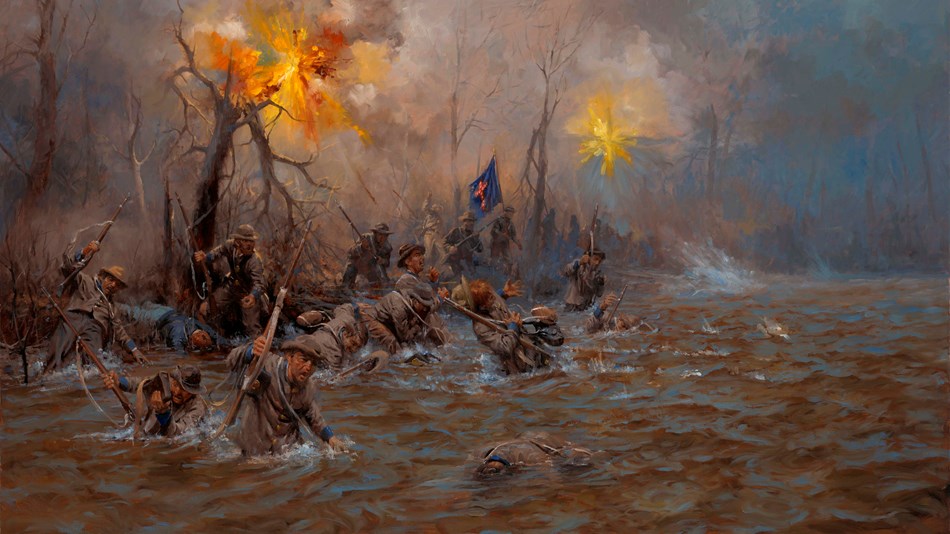
nps.gov/stri/index.htm
4 January 1863: Cap Spurlock is killed
The news of a great victory at Murfreesboro gladdened our hearts & we counted over the spoils as follows: 6000 prisoners, 3000 mules, 40 cannon, quantities of ordnance & ammunition, a good deal of coffee etc. for our sick, burnt six hundred wagons and killed Yankees in some places 10 to 1. Our loss in killed & wounded 5000. Alas! how was this triumph sullied with blood. After supper we were all sitting in the back room when Cooper [a slave] came to the door & said, “Mr. John Spurlock has just come from Murfreesboro and he wants you to come up there.”
Mr. Cap Spurlock is killed & they are bringing his body up now. Great God! I felt as if stunned by a thunder-bolt. Cap Spurlock killed! I could not realize it. I could not believe it. Alas! Alas! it was too true. We all three, Mollie, Darlin & myself went up immediately. The corpse had arrived. Oh! how very wretched it made me feel and how I wept and sobbed. He was in the hottest part of the fight; his company was stationed on both sides of the R.R. just where it crossed the pike. He had sprang on in advance of his men, cheering them on, when he was struck down. He fell & I suppose died instantly. The ball entered just below the left nostril & passed through his head, stopping just under the skin, This however, no one knew as the struggle was so fierce and the firing so furious that they fought over him from 2 o’clock until night, and it was 11 o’clock at night before his body was recovered.
His father was there; he had gone down with a wagon to carry the boys’ Christmas things; & he brought back the body of his son! We went into the parlor to see poor Cap as soon as he was laid out. His uniform was very bloody & had to be cut off him; they had dressed him in a fine suit of black cloth such as he used to wear before the war began. How noble and handsome he looked, & how natural! You could not notice the small place where the ball entered, it was concealed by his moustache, and his face was oh! so serene & calm & his mouth had a faint sweet smile upon it; he was paler than usual, but otherwise looked just like himself in a calm, sweet slumber. But oh! how wretched I felt to know that he was dead! About 10 o’clock they took him down to town to his mother. Darlin went with the corpse, and remained all night, John Lucas Thompson came with us. It was moonlight and there was a large and brilliant halo round the moon. … Oh! little did I think when on Wednesday night last I lay down in bed, and was thinking about the dead & wounded that then were lying out in the cold that our dear Cap was among them! …
On Friday afternoon we attended his funeral. I made a beautiful wreath of geranium leaves & Daphne. … In his coffin, still & pale, he looked the Christian hero that he was. A garland of geranium & evergreen was laid all around his head & shoulders; my wreath, emblematic of the completeness of his life, lay upon his heart. Few looked on him without tears; his family and friends were overwhelmed with grief. The frantic exclamations of his mother … & the still, silent agony of the aged father, were terrible to me. About dark we came home in John’s carriage; I had cried so much & been so excited I was sick all night and all next day. It rained all day Saturday, & rained & blew furiously last night. …
About 8 o’clock last night Henderson came to the door & said Mr. John the telegraph operator says for you to come in there he’s got a dispatch for you. Boisterous and stormy as it was Darlin jumped on his horse & rode in. I was confident Brooks Trezevant was killed or wounded. Mollie & I sat here in the greatest suspense until Darlin returned. What is it? we asked breathlessly. “Go South immediately,” he replied! Our army was then retreating! Brooks Trezevant was safe, and I thanked God for that. …
What is to become of us, God only knows. I wish we could go to Georgia; yet how to get something to eat there, that is the question, And if the Yankees come in here, as they assumedly will, how are we to live here? I feel as though it was no use to try to save anything for we are ruined; let us go or stay. We may as well give it up. …
6 January 1863: A tribute to the memory of Cap & Cicero Spurlock
I wrote today a tribute to the memory of Cap & Cicero Spurlock* & will try to send it to Henry Watterson of the Chattanooga Rebel for publication. I wanted to go to Church today but it was so muddy & windy I could not. Darlin seems to have some idea of leaving here and moving to town. I look for the Yankees here very soon, sooner than we are ready for them. I expect nothing else but that they will come in and find us right here. …
8 October 1862: Cicero Spurlock killed at Perryville
Cicero was born in 1840, in Warren County, Tennessee. In 1860 he was living in McMinnville. He was killed 8 October 1862 at the Battle of Perryville, Kentucky at the age of 22.
31 December 1862: Cap [Drury] Spurlock killed at Murfreesboro
Report of Colonel John H. Savage, Sixteenth Tennessee Infantry:
The following report of the conduct of the Sixteenth Tennessee Regiment in the battle before Murfreesboro, December 31, 1862, is respectfully submitted:
When the advance was ordered … I was directed by General Donelson to move along the railroad, but two companies to its right and eight on its left, taking the guide to the right. The advance was made under a heavy cannonade, and the line of battle and direction maintained, although serious obstructions impeded the march. The eight left companies advanced between the railroad and the turnpike in front of the Cowan house without the slightest protection, engaging a battery and the enemy’s infantry in the woods at a distance of less than 150 yards. The right companies advanced through a stalk-field to the edge of a cotton-patch. Here the enemy opened a heavy fire at short range from a line extending to the right as far as I could see. This killed Captain Spurlock, who fell while leading his men in the most gallant manner. … The men maintained the fight against superior numbers with great spirit and obstinacy. The left companies, being very near and without any protection, sustained a heavy loss. Thirty men were left dead upon the spot where they halted, dressed in perfect line of battle.
19 January 1863: 12th anniversary of our wedding day
Yesterday was the 12th anniversary of our wedding day. Ten years married & the first time I have failed to have a fine dinner on the anniversary. But in the midst of such scarcity how could I get up a fine dinner? A pound cake was all I could make for the occasion. I regretted it more because it was the tenth anniversary when I wished to have something extra.
We have had rain the most of last week which turned to snow and the weather was piercingly cold on Friday & Saturday—thermometer standing at 28 and 29 in the hall. Yesterday it moderated a little but to-day is cold & grey with a bleak thin wind. Morgan and a portion of his troops have been here all the past week, I had a sick soldier, one of Morgan’s men, & a comrade who attended him. The name of the sick one was Rice; he was 15 years of age. I did the best I could for him & next morning he was able to go on his way. Another staid all night Friday night, but we have been obliged to send off a great many because we really do not have provisions to feed them. We have bread & meat, wheat coffee & sassafras tea, a little milk & a very little butter. Oh! it is so hard for me to send those fellows off when they are polite and gentlemanly. When they are not I don’t care.
Our situation here is one of [great] anxiety and uncertainty. The Yankees we hear [have] advanced as far as Readyville. I don’t suppose their cavalry will come this way while Morgan is here, but there is no telling. Maj. Rowan has a dispatch from Harris yesterday which did not encourage us any. It was to the effect that we were not now safe, that the Yankees might come to McMinnville attempting to flank Bragg & if so Bragg unless re-enforced would be compelled to fall back to Chattanooga.
Last week Mollie commenced with the children and I commenced thinking & reading & writing preparatory to going on with my book again. I arranged all my old letters, getting out those received at the commencement of the war, for really my feelings since then have undergone such a change that I have forgotten how I felt when I defended the old Union with all my heart and soul. I was sincere then & I am sincere still, but oh! how changed in sentiment! I am glad I was a Unionist then, though glad I am not now; though I am not a secessionist now, nor ever will be.
15 February 1863: I have never passed so uncomfortable a season
Rain, rain, rain! It poured all last night & this morning is gloomy indeed. Cold indigo blue hills, wrapped in mists, raining at intervals, and everything dull, dripping & dreary to the last degree. … The middle of the month is here today, or rather yesterday which was St. Valentines, & I do sincerely trust that ere long will have some promise of good weather. In 14 days the winter will be over_ shall we have Spring then? I doubt it much. I have never passed so uncomfortable a season. Hard fare, and a house in confusion seem to strip life of half its attractions then the constant strain of suspense, apprehension of Yankee advances, etc. Oh! it is all very, very wearisome.
11 March 1863: Lincoln is a dictator
On Thursday, though it was a chilly day, it was bright & Darlin & I went to see Mrs. Scott & Mrs. Armfield. The roads were awful, & we had to go a round about way crossing the river on the old bridge. We found all well and much delighted to see us, if appearances go for anything. … Mrs. A. had made some nice little presents for the children which I brought home to them, together with some nice apples which she had reserved for them. I came home almost frozen. … There is no freedom now at the North. Lincoln is a dictator. Our independence depends now upon our steady front to the foe. If God would in His goodness grant us a triumph at Vicksburg, & at Tullahoma, we should have peace ere long.
McMinnville and the Civil War
McMinnville changed hands at least five times. After April 1863, it often served as a Federal base; fourteen forts and blockhouses eventually were constructed to guard against Confederate attack. Partisan bands harassed the Union garrisons with occasional raids. Warren County residents held slaves, but there were no large plantations and cotton was not a significant crop. McMinnville’s location placed the community at risk during the years 1862-1865. Often caught between armies, the town experienced frequent periods of internal strife. The last Federal troops did not leave until September 1865.
17 March 1863: A dinner party for Gen. & Mrs. John Hunt Morgan
On this date the Frenches host a dinner party for Gen. & Mrs. John Hunt Morgan. Lucy Virginia French remembers the evening in her journal:
I had the richest, clearest, and hottest coffee, light bread, biscuit, and waffles, potato cakes, stewed peaches and apples, Cole slaw, chicken salad, pickles sweet and sour, golden butter, a splendidly done turkey, and fine boiled ham, and to crown the repast a very large ‘snow cake’ that would just melt in your mouth, and a stand of the most elegant custard in silver cups. How everybody seemed to enjoy that supper! We had a charming time and everything passed off completely to my satisfaction. … Mrs. Morgan [Mattie Ready of Murfreesboro] was dressed in crimson silk with a black figure in it—point lace and pearls. I wore blue silk; Betty Reid had on a gray and Miss Sophie light blue silk.
May 1863: To Beersheba Springs to rest and write
In the spring of 1863, at the urging of her husband, Lucy accepts an invitation from Colonel and Mrs. John Armfield to come to Beersheba Springs, a popular resort community in the Cumberland Mountains south of McMinnville. In 1833 Beersheba Porter Cain, for whom it was named, discovered a large natural chalybeate spring and suggested that the water, with its high content of iron salts, contained medicinal properties. In the 1850s, the Armfields had bought out several landowners, sold lots to prosperous Southerners, and built a new luxurious hotel, which, along with the cabins and grounds, accommodated up to four hundred guests.
At Beersheba, Lucy could try to regain her health while McMinnville braced itself for the summer heat. In theory that would move Lucy away from household concerns and the most immediate military activities and allow her to live in relative peace where she could work uninterrupted on her writing projects. In addition to urging his wife to take time for herself, John French also financed the publication of her first book of poetry, Wind Whispers.
11 MAY 1863: First entry in the Beersheba diary
I am here on the misty mountain top—at kind, good Mrs. Armfield’s. Everything around me is congenial, and conducive to health. Everybody is extremely kind and attentive, and I think if I do not write here, it is clear that I cannot write at all. Last Wednesday we came up—it was a chill half rainy day, and the ride was melancholy to me. I had “inner reasons” for sadness—it seems to me I will never be understood, or have justice done me. Justice is all I ask, but it is the hardest thing for man to give woman. They will be lenient, affectionate, generous—anything and everything but just. I see this all around me … I have written twice to my darling children—heard from Mollie and the Col. twice … Today I commence in earnest on my writing—it seems so slow … I have never been so favorably situated for writing since I had children, and I feel the responsibility—deeply. I must made good use of my time, or be committing a grievous wrong.

sharetngov.tnsosfiles.com/tsla/exhibits/tnresorts/images/beer1.jpg
Life at Beersheba Springs
After a few weeks of peace, the Frenches bring their three children, cousin Mollie Smith, and two [servants] slaves to Beersheba for the summer. The family crowded into one wing of the main house while the slaves lived with the Armfields’ slaves. The idea of Lucy having a break from the war and disturbing incidents on the home front was a good one, but there is no respite from the outside world and the breakdown of society.
10 JUNE 1863: We have been expecting an attack from robbers
A perfect storm this morning with lightning and thunder. It has stopped now (9 o’clock.) but the east wind is blowing strongly & clouds hang along the mountains. For the past two days we have had no news, and the mountain people report that they heard cannonading in the direction of Murfreesboro all day on Monday. The weather is cool; we have fires always in the morning.
For two nights past we have been expecting an attack from robbers. It is a band of lawless depredators who … stop men on the high[way] in day-time & rob them. A few nights since they went to the house of an old citizen near Altamont and telling him if he stirred out of his tracks they would kill him; took everything they wanted, but did not get his money, which was concealed by his wife.
Those same thieves have been threatening Beersheba & Mr. Armfield. For two nights, seven gentlemen have slept here, all armed with double-barreled shot-guns & revolvers. A sentinel stands guard each night in front of the house, which is the only approach to it almost. The tramp, tramp of the men at night on the galleries, and their warlike preparations of defense remind me of stories I have read of old Border feuds, or tales of Spanish romance.
Yankees and Bushwhackers
Residents at Beersheba lived under constant threat of harassment from Yankees one day and bushwhackers the next. Nothing is safe; personal property that could not be buried was sacrificed. Finally, in an effort to achieve some kind of protection from these gangs, Armfield and John French traveled to McMinnville and took the oath of allegiance to the Union. Tennessee was already lost to the Confederacy.
26 July 1863: The Beersheba Raid
Scenes enacted here beggar description. Early in the morning the sack [pillage and plunder] of the place began. But a few of the bushwhackers were in—the mountain people came in crowds and with vehicles of all sorts and carried off everything they could from both hotel and cottages. … They were emptying Mrs. [Cockrill’s] house as we went to the school house, and two rough fellows were in our room playing the melodeon [a small accordion]. … [The] scenes we witnessed are indescribable. Gaunt, ill-looking men and slatternly, rough, barefooted women stalking & racing to and fro, eager as famished wolves for prey, hauling out furniture—tearing up matting and carpets.
[The Union soldiers] amused themselves by pulling down the chandeliers in the dining room, throwing ink bottles against the wall in the office—setting up bottles of wine upon the long Piazza and rolling nine-pin balls at them—using bottles for pins, (the Piazza floor was crimsoned with claret,) cutting the green cloth from the elegant billiard tables, one of which they broke to pieces, and divers other capers of like caliber such as distinguish Yankees wherever they may go.
It has been a memorable day this 26th July 1863—when ‘the master’ [Armfield] went down … to town ‘to take the oath’ and become in Lincolnite parlance a ‘subjugated rebel’—and Beersheba was sacked in his absence by a wild onset from the very people [mountaineers] he has been building up for years!
29 July 1863
I felt pretty well this morning and learning that Mrs. Cain—the lady who discovered Beersheba Springs—was going to leave in an hour or two for McMinnville, I went up with Darlin to tell her good-bye. … We found Mrs. Cain up and ready for her journey, but was not able to get off this morning on account of a wagon tire being broken. She will leave as soon as it can be repaired. I found that Mrs. Hill—[Mary Vesta Hill, wife of Brig. Gen. Benjamin J. Hill] had left on the night at 12 o’clock. …
In her diary Lucy French reveals that she and her friends have begun calling the bushwhackers, ‘the Gentlemen.’ Bushwhackers are irregulars, crude & primitive, who hide in the woods, attack the opposition, and loot the locals.
5 August 1863: Gentlemen and irregulars
On Monday I was excited all day. The place was full of people, the bushwhackers in force and very bold. … They seemed to have a passion (a sudden one) for roaming about the cliffs below the house and garden and I set the girls (daughters Jessie and May) to stand picket on ‘the rock’ because a great many of my valuables were out in the bushes on the hanging cliffs below us. Fortunately they did not find [any] of them. …
Mr. Madden came up from McMinnville last evening. … His report is that the Yanks are very quiet in McMinnville—afraid to stir about much for fear of Forrest [cavalryman Gen. Nathan Bedford Forrest CSA] … The Yanks are fortifying McMinnville … They are pressing all the Negro men to work on the fortifications. …
I was better in health and spirits last summer at this time, at home and bound down among the Yankees than I am at present. … I feel actually worn out with constant worry which I have lived in for three years. ‘The constant drop will wear the stone’ …
12 August 1863: Bushwhackers!
On Sunday last when I wrote in my journal I was … so low down as to persuade myself I didn’t care one jot for the Confederacy or anybody in it—which was a dreadful pass for me to come to. About dark I was walking on the gallery—we were all out there … when three horsemen dashed by at full speed—we caught our breath, and ‘Bushwhackers!’ was echoed from lip to lip.
2 September 1863: A group of lawless thieves
“That doomed hotel,” writes Lucy Virginia French in her diary on 2 September 1863. That day a group of lawless thieves broke into the apartment of Tom Ryan, the Irish overseer of the closed inn, took what they wanted, and set fire to papers, straw carpets, and clothes. … Just then a maid of the French family was passing by and ran to tell her mistress that Ryan’s rooms were on fire. Lucy’s son Bouse, age nine, ran to the hotel cistern with an earthen crock. He made many trips as he dashed water on the flames and saved the property from total destruction.
12 October 1863: Lawless men roam at large
We are environed by dangers on every side and live as it were on the brink of a precipice. Robberies take place every day or two, and we know not when our turn may come. Lawless men roam at large, all about, belonging to neither, or both armies, but whose only object is rapine [the violent seizure of someone’s property] and plunder. I see that the Abolition Nashville Union exalts in the fact that Warren county has been desolated.

beershebaassembly.org/about/
1864 Timeline
30 March 1864
Yesterday’s news was that France has certainly recognized the South; Charleston has really been abandoned by the Federals in despair, Grant has been ordered to [supersede] Meade in Va., to try his hand against the greatest man of the times—Gen. Robert E. Lee.
18 September 1864
Today is the day appointed by [Gov.] Andy [Andrew] Johnson, as the day of thanks-giving and rejoicing over … success of the Federal arms—and the military are to be made to give thanks and rejoice at the point of a bayonet! How worthy of the famous, (or rather in-famous) Andy! McClellan accepts the nomination of the Chicago Convention, but in his letter of acceptance clearly ‘shows his teeth’ in favor of war, viz. unless the South consents to return to the Union [What?]. …
20 November 1864
I have written nothing since election day…. I suppose [the gloomy weather] is prophetic of the second term of Abraham, assisted by the Tailor of Tennessee [Andrew Johnson].
27 November 1864
Peace is a thing no longer to be even dreamed of. It is like a beautiful mirage—a nothingness—a myth of the by-gone time with which we poor war-ridden wretches have nothing else to do, I have laid aside all thought—all hope— all prayer for peace—and shall only strive now to accept our fate as courageously calmly and patiently as I can.
25 December 1864
Christmas 1864. Tonight I have but one thought—the cause of the South has gone down. … For my part I freely acknowledge that I can see no brightness now for the Confederacy. … Oh! I felt very, very sad this morning— our Christmas times are no longer [a] holiday—as of years [before]. How dark and darker they grow! I am [ready] tonight to cry. Oh! God give us peace, peace on any terms!
1865 Timeline
1 January 1865
[Still] we are under the clouds—as dull and gloomy as ever—perhaps even more so. There seems but little to live for—yet we live on. … Life to us is devoid of pleasures—and is made up of endurances. … To look back is most saddening— to look forward, even more disheartening for it seems we have nothing for which to hope. … I feel discouraged in every way—our cause seems to be sinking day by day…. [As] a family we merely get along, as agents for any good anywhere—we are powerless.
8 January 1865
The sentiment among officers and men caused them to say, “There will yet be a Confederacy!” … I do not see that the prospect is very brilliant at present. … I do want to improve myself during all these years we are compelled to live under the cloud of war. … But yet I almost despair of being able to accomplish anything.
24 January 1865
There is a contraband camp [near McMinnville] where … poor wretches literally freeze to death by dozens during this severe weather—they have no clothes scarcely—bedding, shelter, and food the same, while their friends the Yankees curse and abuse them for everything low and vile and no account. Of course, who expected anything else? The papers at present are full of Peace rumors. I think the Yanks are becoming quite as weary of the war as Rebs are reported to be…. A more important rumor is the old one revived—Intervention of England and France. It is stated that they will … recognize Mr. Lincoln as President only of the States which elected him—thus recognizing the Confederacy.
22 FEBRUARY 1865
Last Wednesday was the 22nd Feb.—the day appointed by the Johnson and Brownlow Convention for the people of Tenn. to vote the State back into the Union as a free State! … A sadder day and sadder faces I think I never saw. It was an understood thing … that everybody should vote ‘Ratification.’ Federal bayonets were on hand—the motive power—and men marched doggedly into [McMinnville] voted, and immediately slunk home again—as if saddened, perhaps ashamed.
30 March 1865
The Yankees look upon the Rebellion as having all its legs now broken all to pieces—its backbone which has been cut in two—’chawed up’ [chewed up] and otherwise demolished … is not annihilated, & the whole Confederacy like an over-ripe pear, falling to pieces of its own inherent weakness is about to precipitate itself piece-meal into the victorious arms of Sherman and Grant.
9 April 1865: General Lee surrenders.
In her diary Lucy Virginia French expresses a weariness she has never felt and frequent headaches. Her house, Forest Home, once her haven, is now in need of extensive repairs. She is certain their wealth is gone.

Lucy Virginia Smith French Marker
Inscription.
Poet and author, born 1825 in Accomac County, Va. Moved to Memphis ca. 1845, where she taught school and published poetry under the pseudonym “L’Inconnue”. Editor of several Southern literary magazines; married John French in 1853; moved to his McMinnville residence, “Forest Home”.
Published several volumes of prose and poetry including, Wind Whispers, 1856; Legends of the South, 1867; and Darlingtonia, 1879. Died 1881, buried Riverside Cemetery.
Erected by Tennessee Historical Commission.
Location.
35° 41.26′ N, 85° 47.591′ W.
McMinnville, Warren County, Tennessee.
On West Main Street (Tennessee Route 380) west of Bradford Road.
hmdb.org/m.asp?m=60405
23 April 1865: Rumors fly faster than truths
A great tragedy has been enacted … in the assassination of Lincoln and Seward. … I was out in the front yard clipping some cedars when the Col. [her husband] came to the door … and he said very quietly, ‘Well, Lincoln is dead.’ I had not the smallest idea it was true. … The story [we read was] that Lincoln and [Andrew] Johnson had been at the theatre together—a man had rushed up and stabbed both—killing Lincoln and mortally wounding Johnson, and the assassin had himself been killed on the instant. …
Next day, in addition, comes the report that Seward had had his throat cut also; then I didn’t believe any of the story. Thursday, however, a courier came from Tullahoma & Mollie came from Woodbury. The story then ran that Lincoln & Mrs. L went to the theater. Mr. L. was shot in the head in his box by Wilkes Booth son of Booth, the actor, & that he escaped on a fleet horse.
The same evening Seward’s room was entered; his two sons were murdered & he himself had his throat cut from ear to ear. … Andy was inaugurated next day. … We are told also that about 30 citizens in Nashville were arrested because they implicated Andy in the assassination of Honest Abe. Some persons in Murfreesboro took the crepe from their doors, which had been placed there by military order. The houses were entered & the furniture destroyed or carried off. … In town, soldiers exerted themselves to draw citizens into some expression of joy over the tragedy so that they would have a pretext for ill-using them. I feel that it is dreadful—a tragedy solemn even to awfulness.
10 May 1865: Mollie was carried away to Tullahoma
Lucy’s cousin Mollie Smith is arrested for expressing joy at the news of the assassination of President Abraham Lincoln. As the Frenches prepare to defend her, Dr. Armstrong organizes a petition among the community’s Unionists on her behalf. And Union Lt. Colonel W. J. Clift, a long-time citizen of McMinnville, advises her how to answer the questions she would be asked. Mollie is released without charges.
14 May 1865: They sleep among strangers in unknown graves
But little has passed since I last wrote, and nothing has yet transpired as to the final settlement of our affairs. We understand that trade restrictions are being removed and the Federal army is being reduced, by resignations of officers, mustering out of men, cutting down Quartermasters Departments etc.
None of our Boys have yet returned from their regiments, some of Lee’s paroled soldiers who live up in the counties north of us have passed, but none of those belonging to this town or vicinity have as yet come in. Probably they will be in the 22nd of this month, which was the day they all started out in 1861. Poor fellows, four long years of service, hardship & suffering, & all for what? … Some are sleeping here in our crowded graveyard and many will never even be so near even in death—they sleep among strangers in unknown graves, on dreary battlefields. …
It is perfect folly for us to sit down here and let circumstances grind on—unless we make new conditions with fortune, we will find ourselves ground exceeding[ly] small before many years. … There is no use in waiting for things to turn up now; we ought to put our shoulders to the wheel & turn them up. I do not suppose I will ever learn to be patient. … I don’t see how I can well afford to be so. Our time here will be short; what we do we ought now to be doing with our might, but I suppose we will sit here [until] our time [is] out & drop into the grave like thousands around us, having done no more or being no better than they.
I begin sometimes to feel quite charitable towards the North but the moment I catch sight of these blue things I am full of resistance & rebellion. How I do hate them! And how I want to let ’em know it to the full! Sunday May I have just been looking over the above writing & smiling at it a little; it is so impatient. Well, I try to be patient Heaven knows, but I do not succeed in being so at all times. I got very angry once this week, insomuch that the Col. lectured me a little about it & told me I looked exceedingly ugly in that condition! Well, I was angry & as I conceive not altogether without cause.
29 May 1865: Pres. Johnson issues his Amnesty Proclamation
Johnson’s Reconstruction strategy disenfranchises large land-owners (anyone with taxable property over $20,000) and former Confederate military leaders until their individual petitions for amnesty are approved; the federal government also now requires all states to ratify the 13th Amendment; only 10% of the voting population of any Southern state must take a loyalty oath in order for the state to be readmitted to the Union.
26 June 1865: I want to sell out & leave here.
A very lovely day—cloudy in the morning with much appearance of rain, but cleared off about 10 o’clock with a pleasant breeze. Cleaned house up all over after breakfast, dressed, went down to see Mammy [old slave is sick], came back & heard all the lessons, had dinner, cut out a pair of linen pants for the Col. & now sit down to write a few lines.
On last Thursday I sent a political letter (private) to the Eds. Cincinnati Enquirer, … I am so sick of the present Press of strong Unionism & feeble intellect! It is too much for my patience. … [Lucy’s new chores; most of their slaves ran away] I milk, and set table, make beds, clean & sometimes assist Puss in ironing. …
On last Thursday I sent a political letter (private) to the Eds. Cincinnati Enquirer, … I am so sick of the present Press of strong Unionism & feeble intellect! It is too much for my patience. … [Lucy’s new chores; most of their slaves ran away] I milk, and set table, make beds, clean & sometimes assist Puss in ironing. …
I want to sell out & leave here, and go to Huntsville, Ala. I am weary of this stupid place. I want to get where there is some progress and some civilization. There is no life here; no vitality in anything. I don’t intend to buy anything I can possibly do without until the hard times loosen themselves in some manner. Oh! I must stop writing; sitting down in this way makes me so sleepy & dull. I must stop & go off & do something.
20 August 1865: I have tried to do my duty
Very many bitter thoughts came over me—I have tried to do my duty—but those whom we know have been mean and inconsistent, nay even wrong, but have been successful in life and we have lost—lost until there is little left now to lose. I do feel discouraged—so weary—so worn out with hoping and working and all to no purpose. I have tried so hard, and still seemed to go back all the time … I now feel pleasantly ready to sit down by the wayside and never strike another lick. … What a wretched, savage mood I am in today. It wears me so. I wish I had a live book to read to take me out of myself. I will try Shakespeare then for my amusement.
Thus ends the diary Lucy Virginia French kept from February 1862 to August 1865.

My Roses, a novel (1872)
31 March 1881: Lucy Virginia French passes on
Lucy Virginia Smith French dies at Forest Home after a long illness, and is buried in the little cemetery there.
SOURCES
Clopper Almon, Editor, “Beersheba Springs, A History,” Volume I: General History, the Hotel Assembly, and Shops, 2010 Edition, Beersheba Springs Historical Society, grundych.org/05_Res/Beersheba/Beersheba_Vol_1-3_R2.pdf
Connie Lester, “Lucy Virginia French’s Civil War,” for Civil War in the Borderlands, accessed 14 December 2020, tnvacation.com/civil-war/files/2/Lucy-Virginia-Frenchs-Civil-War-by-Connie-L-Lester.pdf
“Lucy Virginia French Diary,” Civil War Talk, accessed 14 December 2020, civilwartalk.com/threads/lucy-virginia-french-diary.144054/
“Lucy Virginia French Diary,” Tennessee Virtual Archive, accessed 22 August 2021, teva.contentdm.oclc.org/digital/collection/p15138coll15/id/443/
“Lucy Virginia French Diary,” Tennessee Secretary of State Files, accessed 27 August 2021, sostngovbuckets.s3.amazonaws.com/tsla/digital/teva/transcripts/36059.pdf
“Lucy Virginia Smith French,” Shades of Gray and Blue, website co-sponsored by Vanderbilt University Libraries, Middle Tennessee State University Walker Library, and the MTSU Center for Historic Preservation, with generous support from the Tennessee Civil War National Heritage Area, accessed 14 December 2020, civilwarshades.org/holding-fast-to-beauty/lucy-virginia-smith-french/
“Lucy Virginia Smith French’s Journal–Near the War’s End,” Shades of Gray and Blue, accessed 27 August 2021, civilwarshades.org/wp-content/uploads/2018/05/Lucy_Virginia_French_Journal.pdf
“Occupation of McMinnville,” Historical Marker Project, accessed 22 August 2021, historicalmarkerproject.com/markers/HM1B7B_occupation-of-mcminnville_McMinnville-TN.html
“Tennessee Civil War Sourcebook,” Searchable collection of over 7,000 articles, Tennessee State Library and Archives, accessed 27 August 2021, tnsos.net/TSLA/cwsourcebook/
“The Tennessee Civil War Sesquicentennial Timeline,” Tennessee in the Civil War, accessed 27 August 2021, civilwartn.wordpress.com/timeline/
“Union-occupied McMinnville,” Tennessee Secretary of State Files, page 224, accessed 27 August 2021, sharetngov.tnsosfiles.com/tsla/cwsb/1862-08-Article-158-Page224.pdf
“War Journal of Lucy Virginia French,” Civil War Sourcebook, Tennessee State Library and Archives, Civil War Resources, Tennessee Historical Commission, accessed 27 August 2021, tnsos.net/TSLA/cwsourcebook/
TSLA, Diaries, Memoirs, etc., French, L. Virginia (Smith), War Journals, AC nos. 89-200 and 73-25. sharetngov.tnsosfiles.com/tsla/exhibits/tnresorts/beersheba.htm
Herschel Gower, editor, “Beersheba Diaries 1863—1864,” Beersheba Springs Historical Society, 2007


